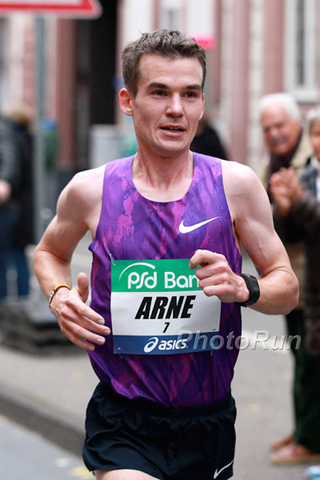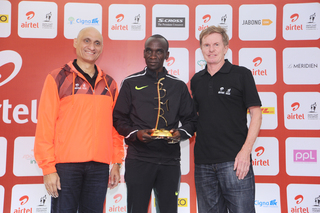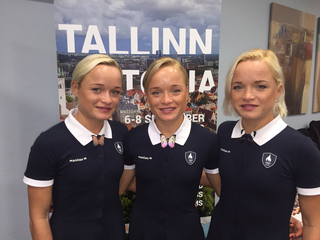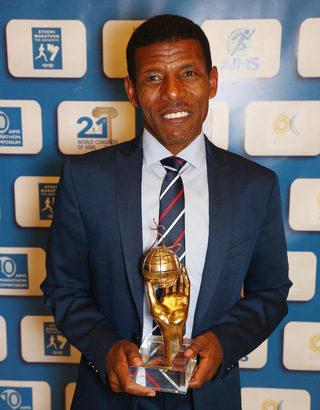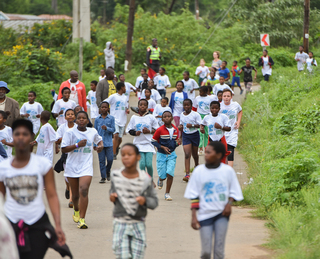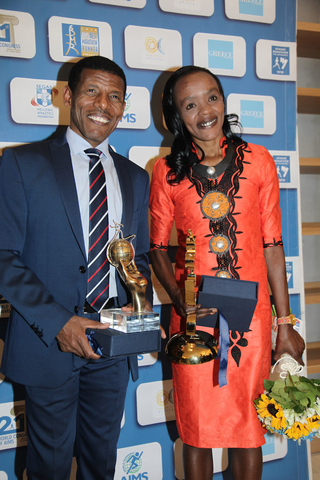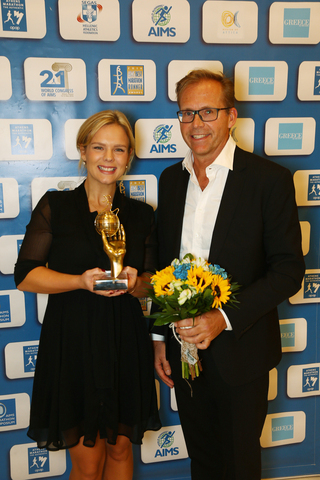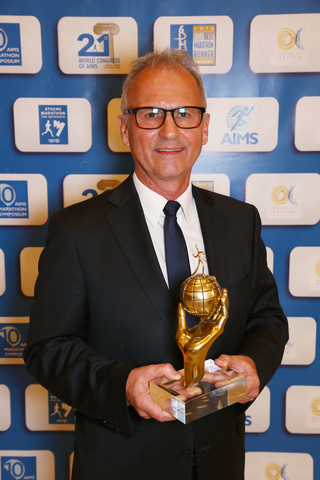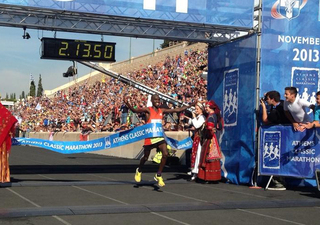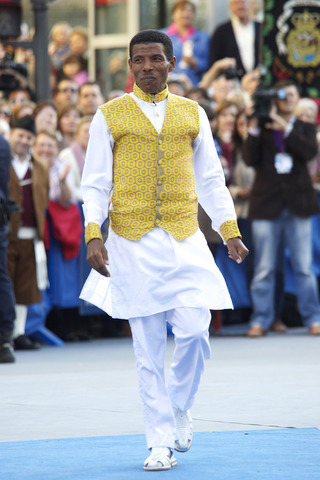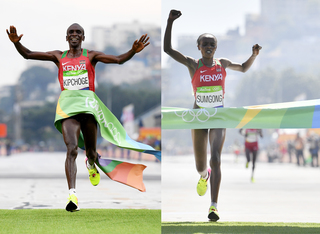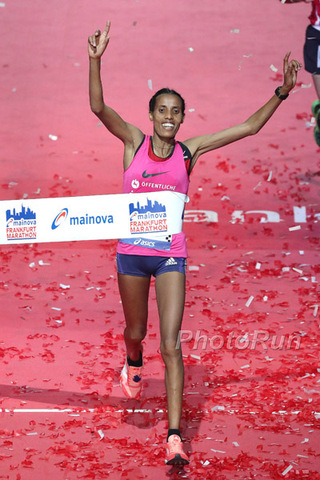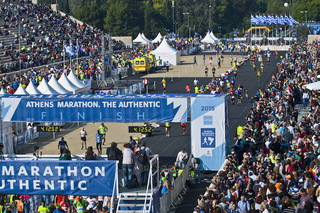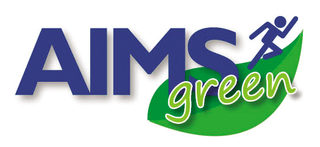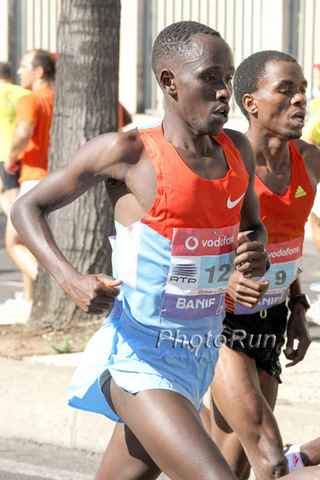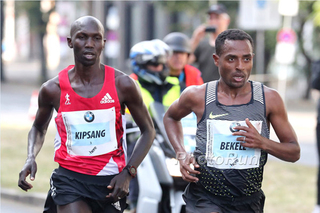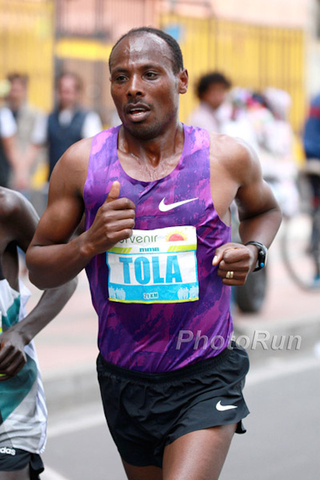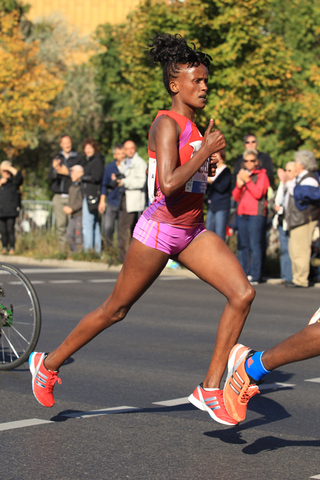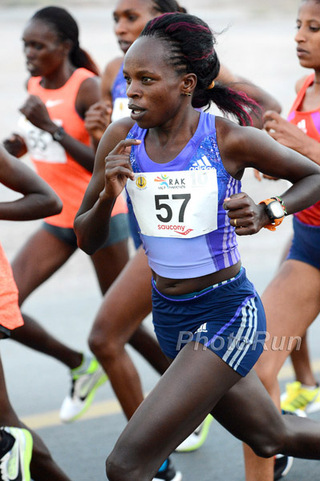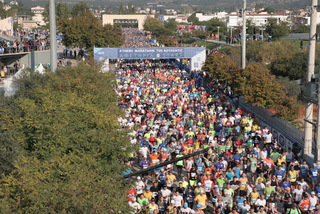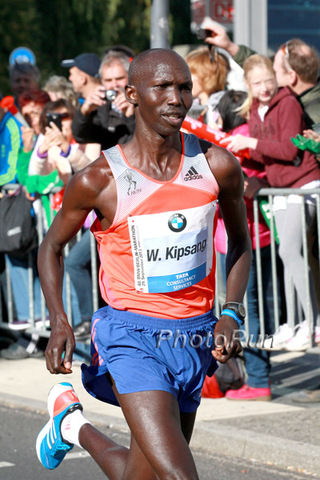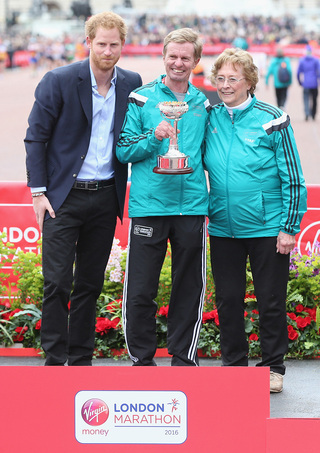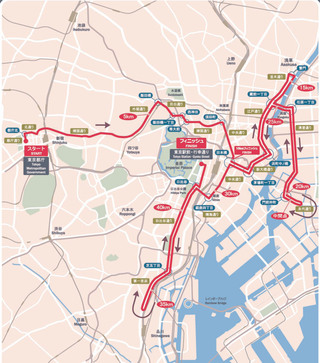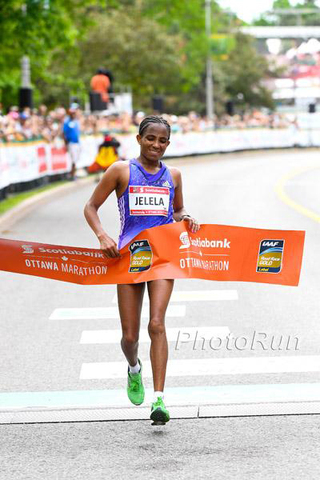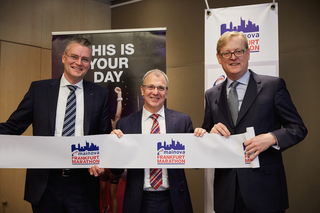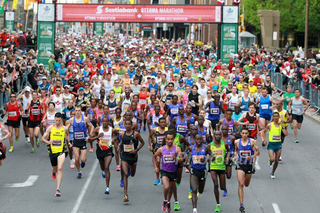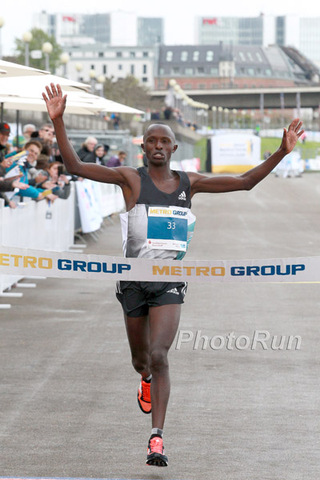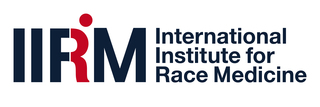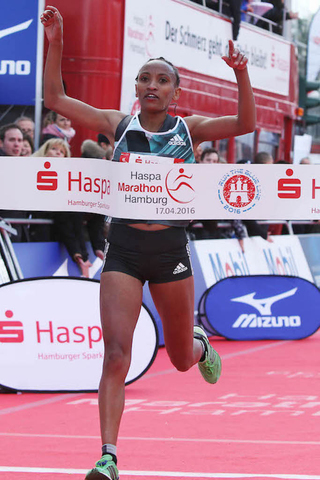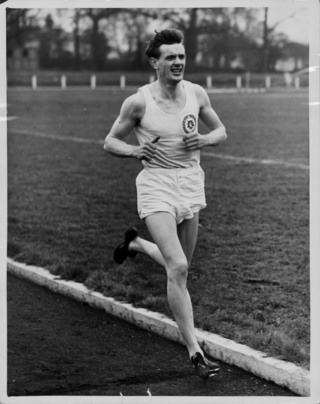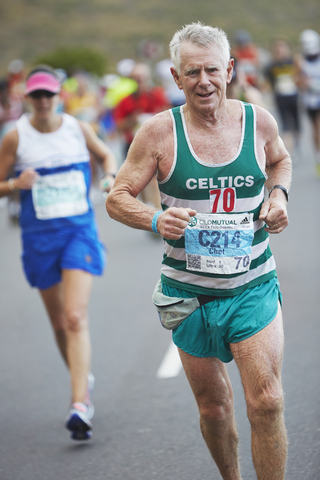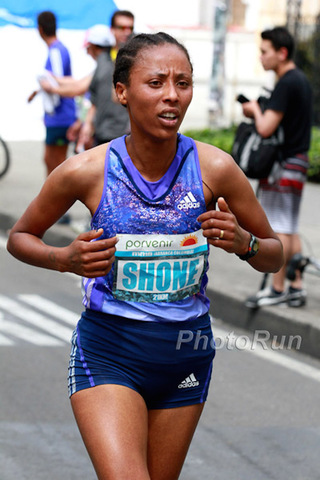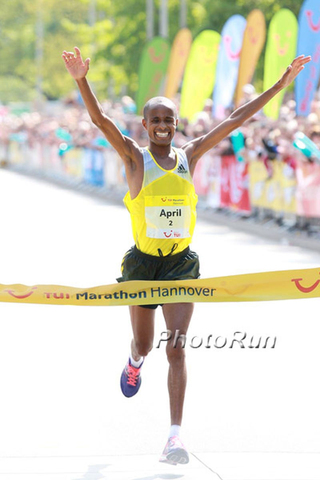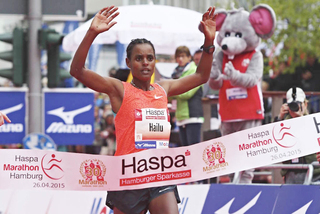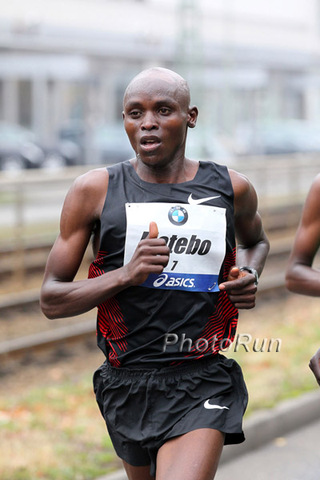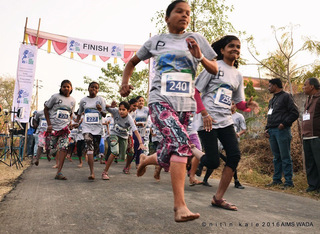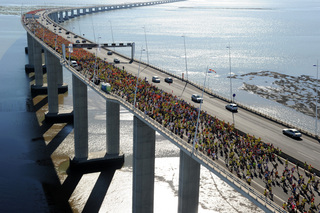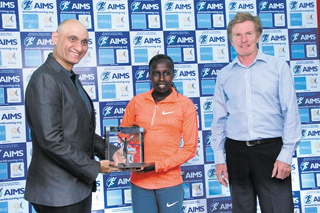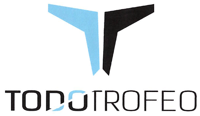 To read the latest & past editions click here
To read the latest & past editions click here
Date changes Pune International Marathon
Pune postponed until January
Marathon and half marathon to be held at later date
Pune International Marathon Committee decided to host 5km and 10km races on the 4 December 2016 at the Shiv Chhatrapati Sports Complex Balewadi. Pune, Half Marathon and Marathon categories will now provisionally take place on Sunday 29 January 2017. Entries will automatically be carried over to the new date.
This article was revised after first publication.
Date changes UNICEF Charity Run Half Marathon & 10km
Replacement UNICEF Charity Run planned for 2017
Organisation hopes to stage event at Disneyland
The Hong Kong Committee for UNICEF (UNICEF HK) announces that it is working towards resuming the UNICEF Charity Run in the early part of 2017 at the Hong Kong Disneyland Resort, as a replacement event for the one cancelled on Sunday 27 November 2016. The arrangement has yet to be confirmed and work is in progress for obtaining all the permits and approvals from various government departments, and liaising with partners.
This article was revised after first publication.
Race news ADAC Marathon Hannover
Gabius chooses Hannover for next marathon
German marathon record holder is surprise guest in April
Organisers of the HAJ Hannover Marathon caused a major pre-Christmas surprise today by presenting German record holder Arne Gabius during a press conference.
The 35 year-old will run his next marathon on 9th April in Hannover. The HAJ Hannover Marathon has developed well in recent years and is an IAAF Silver Label Road Race. Entry for the event, which also includes a half marathon that will feature the national championships for the first time, is available at: www.marathon-hannover.de
“I know that I probably caught many people by surprise by committing to the HAJ Hannover Marathon,” said Arne Gabius. “However after my injury I was looking for a suitable race to come back and did not want to go for a major international marathon like London straight away. I wanted to run in Germany and Hannover is a great race where I am sure that I will find excellent conditions.”
A long-term injury with an inflammation in the pelvis area forced Arne Gabius to first withdraw from the Olympic marathon and then cancel any plans for an autumn marathon. Before he had dropped out of the London Marathon in April so that he last completed a marathon more than a year ago: It was in Frankfurt where he broke the long standing German marathon record with a time of 2:08:33 in October 2015.
“There should not be too much pressure for me in Hannover and I hope to enjoy the competition. Additionally the earlier April date of the race suits me,” said Arne Gabius, who recently started running sessions again after doing most of his training in water before. He plans to run a first competitive race on New Year’s Eve and will then determine when and how long he will go for training to Kenya in the built up to Hannover. It is likely that he will run at least one half marathon before his marathon race.
“Of course I would like to run a time of around 2:10 in Hannover — however at present I am simply unable to make any predictions. I have never had such a major injury in my career before so that I have to wait and see what kind of shape I can get myself in,” said Arne Gabius, who might still opt for a marathon start at London’s World Championships next summer. This will of course depend on his race in Hannover and on the recovery after that. On the very flat course in Hannover the German qualification time of 2:13:00 should normally not be a major obstacle for Arne Gabius.
This article was revised after first publication.
Date changes
Maratón Málaga called off
Bad weather forces cancellation
Because of adverse weather conditions and force majeure the Department of Security of Málaga City Council has decided that, for reasons of the health of the participants, the Maraton Málaga that was scheduled for 4 December. This also applies to the Carrera de los Boquerones 5km race that is held in conjunction with the Marathon.
Participants are directed to info@maratonmalaga.com for the resolution of any outstanding issues concerning their registration.
This article was revised after first publication.
Date changes
Race date for Erzurum Half Marathon (TUR) changed
Erzurum Half Marathon date change
The Erzurum Half Marathon (TUR) will take place on Sun 7 May 2017, not Sun 21 May 2017 as previously published.
This article was revised after first publication.
Date changes
Race date for Nova Poshta Kyiv Half Marathon (UKR) changed
Nova Poshta Kyiv Half Marathon date change
The Nova Poshta Kyiv Half Marathon (UKR) will take place on Sun 9 April 2017, not Sun 30 April 2017 as previously published.
This article was revised after first publication.
AIMS Congress
Catching up with Eliud Kipchoge
Delhi presentation for Best Marathon Runner award winner
The AIMS Best Marathon Runner 2016 award managed to catch up with winner Eliud Kipchoge, after a six-day chase, 54 degrees of longitude further east.
Kipchoge was unable to attend the official BMR Award ceremony staged in Athens on 11 November (immediately following the 21st World Congress of AIMS) because he was fully focused on final preparations for the Airtel Delhi Half Marathon to be held on 20 November. But within hours of arriving in the Indian capital he attended a pre-race press conference on 17 November at which the award was handed over to him by Race Organiser Vivek Singh and AIMS secretary Hugh Jones.
The corresponding women’s award was made to Jemima Sumgong at the scheduled ceremony in Athens on 11 November.
This article was revised after first publication.
Date changes Bangkok Marathon
Bangkok Marathon postponed
Death of monarch delays race until spring
Thailand is in a period of national mourning after the passing of His Majesty King Bhumibol Adulyadej. The organising committee of BDMS Bangkok Marathon 2016 has postponed the race from 20 November 2016 to 5 February 2017. The new race venue is Utthayan Road, known as one of the most beautiful avenues in Thailand, and the route will be on the Barommaratchachonnani Elevated Highway.
Please note that due to warmer weather expected in February the revised race times are:
Marathon (42.195 km.) starts at 00.00 (Midnight) and ends at 06.00.
Half Marathon (21.100 km.) starts at 02.00 and ends at 05.30.
Mini Marathon (10 km.) starts at 05.00 and ends at 06.30.
The original rules, regulations, and awards in all categories still apply.
A new race route and map will be announced soon.
This article was revised after first publication.
Date changes TUI Rhodes Marathon
Race date for Roads to Rhodes Marathon (GRE) changed
Roads to Rhodes Marathon date change
The Roads to Rhodes Marathon (GRE) will take place on Sun 9 April 2017, not Sun 30 April 2017 as previously published.
This article was revised after first publication.
AIMS news
Tallinn wins 22nd AIMS Congress
Association will meet in Estonia in September 2018
The hosting of the next and 22nd Congress of AIMS was won by the Tallinn Marathon and will be held in the beautiful city of Tallinn in Estonia on the dates of the 6–8th September 2018.
The excellent presentation made by Renna Järvalt, the General Secretary of the Tallinn Marathon had a unique element which was a dance by the triplets Leila, Lily and Liina Luik, who made history this summer in Rio de Janeiro by becoming the first triplets to compete in the Olympic women’s marathon. They referred to themselves as the “Trio to Rio”.
The then 30-year-old triplets only took up the sport six years ago but Lily came a respectable 97th and Leila was 114th. Unfortunately, Liina was unable to complete the tough event on the day, but all three names are now etched in Olympic and world history.
The presentation included personal messages from Estonian President Kersti Kaljulaid and Prime Minister Taavi Roivas.
The other impressive bidders were Jerusalem Marathon (Israel), Penang Marathon (Malaysia), and HeidelbergCement Tbilisi Marathon (Georgia).
The Congress is co-organised by the ‘Athens Marathon, the Authentic’ and the Hellenic Athletics Federation (SEGAS), Greece’s governing body for athletics.
This article was revised after first publication.
Date changes
Race date for Coca-Cola Wake Your Body Women’s Run (HUN) changed
Coca-Cola Wake Your Body Women’s Run date change
The Coca-Cola Wake Your Body Women’s Run (HUN) will take place on Sun 28 May 2017, not Sun 21 May 2017 as previously published.
This article was revised after first publication.
Race news
I want to run in Athens, says Haile
Haile Gebrselassie reflects on Athens, life as a fun runner and his new role as Ethiopian Athletics president
Wherever Haile Gebrselassie goes, the world of running wants to hear the thoughts of the now retired great athlete who has won two Olympic gold medals, many world titles and set world records on the track and the road up to the marathon.
When he arrived in Athens to receive his Lifetime Achievement award presented by AIMS, the Association of International Marathons and Road Races, the interest in the newly elected president of Ethiopian Athletics was just as great.
“Greece is a wonderful country which everyone wants to visit. It’s the birthplace of the marathon, that’s why they are coming here to run,” said Haile, speaking two days before some 50,000 took to the roads of Athens, including around 17,500 who ran the “Athens Marathon. The Authentic” on Sunday.
Ever the diplomat, Haile also mused on the possibilities that he himself might one day run in the footsteps of history and take part in the original, classic marathon course from the coastal town of Marathon to the Panathinaic stadium in Athens.
“I want to run this marathon, to be on the start line and feel the atmosphere. Of course, I don’t promise to do it as a competitor but as a fun runner. We’ll see, you never know.”
A more concrete goal is Haile’s plan to revitalise Ethiopian athletics as its new president. Their success has been far from consistent in recent years and the amicable rivalry with Kenya has left them trailing their East African counterparts.
Haile emphasises that his plans will not bring success overnight: “Yes, I have to restructure, I have to decide on what is good and what is bad. I know what the athletes need, what is important for them but also what the federation has to do.”
A source of much debate has been the selection process for Ethiopian international teams. The omission of Kenenisa Bekele from the Olympic Marathon squad for Rio this year provoked the most recent controversy. Haile has clear views on the subject: “The people who were doing the selection didn’t know about the process, that’s why we paid such a price. Rio was really bad but it included things they had done before they went to Rio. That’s also one of the things I have to restructure.”
In recent years both positive tests for drugs and general allegations have come to the fore in Ethiopian athletics. The new federation president will not shy away from the problem: “I shan’t be able to solve the doping problem within a year but we have to clean up the sport – we live in Ethiopia, why should we need doping?”
The man himself looks as trim as when he was setting world records on track and road, looking hardly a day older than when he was winning the first of his four World 10,000m titles 23 years ago in Stuttgart. He may have finished his career as a world record marathon runner but the track retains his fondest memory: “Looking back, I would say the greatest race of my life was the 10,000m in the Sydney Olympics in 2000, the worst was when I dropped out of the New York Marathon in 2010.”
Numerous though his medal collection is, the total is guaranteed to be exceeded in multiples by the great Ethiopian having to reply to the question of when or if the marathon can be run under two hours. Haile’s current thoughts are: “In future it might be possible to run under two hours for the marathon but it’s not going to happen next year. In seven or 10 years someone might run under two hours.”
In the meantime, Haile Gebrselassie is turning his attention to getting Ethiopian athletics back into winning shape.
This article was revised after first publication.
Children’s running
Children’s Series update
Events in South Africa and Zimbabwe
The final AIMS Children’s Series race to be held in Pietermaritzburg, KwaZulu-Natal was staged on 13 November from the FNB Wadley Stadium in Edendale, a township in the city of Pietermaritzburg. The race coincided with the 10th Greater Edendale 10km road race and both were organised by the Comrades Marathon Association as part of its Corporate Social Investment Initiative.
Close to 2000 children between the ages of 9 to 15 from schools around the township took part. They ran proudly for 5km along the streets of Edendale and for many it was their first experience of a road race and for nearly all it was the first time that they had received a t-shirt and a medal for doing so. As they finished the race they were applauded by the runners who had run the 10km and many community members who came to support the event. Well after the race kids from the township could still be seen wearing their AIMS CHILDREN SERIES t-shirts with pride and with their medals hanging around their necks.
The Comrades Marathon Association handed two electronic prizes to the two schools that brought the greatest number of school kids to participate in the event. The school kids also had an opportunity to win individual lucky draw prizes.
On behalf of all the children, the Comrades Marathon would like to thank AIMS for the noble idea of the AIMS Children’s Series race. Events like this go a long way in motivating kids to take up the sport of athletics. It is from these grass root events that future champions grow.
The final AIMS Children’s Series event to be held in Zimbabwe took place on 17 September at Riversdale School in Featherstone. School staff assisted the organisers from the Women’s International Fellowship (WIF).
Last year’s event raised sufficient funds to cover the installation of a borehole which has significantly improved the quality of drinking water and given the school a much more established feel to it.
All the children who participated received T-shirts and medals and winners were given trophies. A locally-recruited sponsor, NetOne (a telecommunications operator) gave the senior school runners pens as gifts.
Overwhelming demand required T-shirts to be given to all children participating in the events of the day, including the choir, culture club and catering.
For the senior school races were split between boys and girls but some of the primary school races were mixed. The longer races had to be held promptly to avoid the heat of the day. Races ranged in length from 100m for under-9s to 3km and 7km for over-14 girls and boys respectively. In all nine separate races were held. In between the races the children provided entertainment through the well-rehearsed choir, the Drama Club, cultural dances and poetry recital (which included hip-hop). Activities were rounded off with a tug of war.
The race has become the key event on the school calendar, with proceedings funding building renovations and additions. The races have inspired the development of sport in the school. They have introduced more sports into their curriculum and currently play handball, netball and soccer with cricket and rugby likely to follow.
The event was dedicated to WIF founder and visionary Jane Aichi Olamikun Banjo who fell ill during the 2015 races and eventually died in October 2015. The races were a fitting tribute to her legacy.
Events in the 2017 series will be held in Khanivali (IND) and Quito (ECU) during June and in Erbil (IRQ) in October.
This article was revised after first publication.
AIMS Gala
Gala prizes in Greece
Awards for Eliud Kipchoge, Jemima Sumgong and Haile Gebrselassie
Awards to the Olympic Marathon Champions Eliud Kipchoge and Jemima Sumgong as well as the former world record holder Haile Gebrselassie were the crowning moments of the AIMS gala in Athens, the birth place of the Marathon, on Friday 11 November.
Their outstanding achievements were given global recognition at the fourth annual AIMS Best Marathon Runner’ (BMR) Awards Dinner Reception, which was held as part of the 21st AIMS Congress this year.
Eliud and Jemima were selected by an expert panel on behalf of AIMS Members, made up of 410 of the world’s leading and most prestigious distance races from over 110 countries and territories.
While Kipchoge was unable to attend the ceremony and was represented by his manager Jos Hermens, Sumgong received the Best Marathon Runner of the Year award and Gebrselassie was honoured in Greece with the Lifetime Achievement award by AIMS.
Two more awards were presented on Friday evening: the AIMS Green Award to the Göteborg Varvet Half Marathon and the AIMS Social Award to the Munich Marathon.
“I didn’t expect that I would one day be as successful as this. There are many women athletes in Kenya who are more talented than me,” said Jemima Sumgong, who won the London Marathon in April this year before capturing the Olympic Marathon gold medal in Rio. The 31-year-old reflected on this as she made her acceptance speech for the award. She said that, if selected by the Kenyan Federation for the World Championships next year: “I shall try my level best to win the gold medal in London.”
“It is so special for me to be recognised in this way by AIMS, their members and sponsors. I would like to thank them for awarding me in recognition of my achievements this year. I have been delighted with my form this year and this is a wonderful way to have my efforts recognised by the people at the top of organising my sport at the highest level,” she added.
It was a double Kenyan celebration at the award ceremony since Sumgong’s compatriot Eliud Kipchoge won the male category after the same sequence of wins in London and then the Olympic Marathon. “I am delighted to receive this award for the second year in a row. I really enjoyed receiving the Best Marathon Runner Award last year in Athens and I am very pleased to have been recognised by AIMS and their members from around the world again. It is a great honour to receive this award,” said Eliud Kipchoge.
AIMS President Paco Borao comments: “Jemima and Eliud are clearly the outstanding performers of our sport in 2016. I am delighted that AIMS 410 races from over 110 countries have recognised the achievements of these very impressive athletes in the spiritual home of the Marathon Movement, Athens.”
Haile Gebrselassie was honoured with the Lifetime Achievement Award, a fresh distinction following his recent election as the president of the Ethiopian Athletics Federation. “I am very grateful to receive this honour and that it should be in Greece, the birth place of the Marathon,” said the 43-year-old Ethiopian.
The Gala was held in collaboration with the Stavros Niarchos Foundation Cultural Center, at the newly built and impressive installations of the SNFCC in Athens which have been completed and opened for the public during last summer. Four years ago, in 2012, the Stavros Niarchos Foundation purchased at auction in London the silver trophy of Michel Breal which Spiridon Louis was awarded after his Olympic Marathon victory in 1896. The Trophy is now on display at the Stavros Niarchos Foundation Cultural Center and was viewed by guests at the Gala on Friday evening.
This article was revised after first publication.
AIMS news
GöteborgsVarvet takes Green Award
Environmental practice of Swedish race
The GöteborgsVarvet Half Marathon from Sweden received the ‘AIMS Green Award’ for 2016 in recognition of their long term investment in environmental practice.
In 2012 and 2014 they received environmental diplomas and in May 2016 became one of the first races in the world to receive ISO 20121 certification. ISO 20121 is a management system standard that has been designed to help organizations in the events industry improve the sustainability of their event related activities, products and services.
Bo Edsberger, Race Director of the GöteborgsVarvet Half Marathon comments: “We are honored to receive this award from such a renowned organisation as AIMS. We were very proud to receive ISO 20121 certification earlier this year and to receive the AIMS Green Award is another great success. We would like to thank AIMS, their members and sponsors for recognizing us and our sustainable work with this great award.”
This article was revised after first publication.
AIMS news Marathon München by Brooks
AIMS Social Award goes to Munich
Recognition for engagement with refugees
The AIMS Social Award for 2016 was presented to the Munich Marathon for their project ‘Laufend integrieren’, which roughly translates as ‘constantly integrate’.
This project has sought to help refugees integrate into German culture by setting up running groups for refugees and local Munich runners. They also employed more than 100 refugees around the race weekend preparing the race packages, handing them out and stewarding the route. Finally, bracelets branded with ‘Laufend integrieren’ were sold at the sports expo.
The money raised from the bracelets in addition to donations from sponsors meant the Munich Marathon donated €30,000 to the social authority for Munich to distribute as they see fit.
Gernot Weigl, Race Director of the Munich Marathon comments: “We would like to thank AIMS, their sponsors and members for recognising us with the AIMS Social Award. We are delighted at the success of our ‘Laufend integrieren’ project so far and look forward to continuing the success in years to come. The response from our new friends from abroad and the local people has been moving to see. This project has hopefully helped people understand the massive social challenges that many of the people arriving in Germany have had to face as they seek a new, safer life.”
This article was revised after first publication.
AIMS Congress
Running boom as millions around the world take up the sport
Greek home of marathon running hears expert voices on doping scandal, sees election of new AIMS board
The growth of running is booming around the world, an audience representing over 400 cities in over 100 countries and territories heard this week in Athens, Greece, the home of the marathon.
The ‘Athens Marathon, the Authentic’ Greece has seen growth from 5,000 runners to 50,000 in the last 10 years reported Athens Marathon, General Manager, Makis Asimakopoulos.
William Ko, Chairman of the Standard Chartered Hong Kong Marathon reported that his race has seen an increase from 1,076 runners in 1997 to 74,000 in 2016. Millions of runners around the world are enjoying the sport and the physical and mental health benefits it brings.
AIMS President Paco Borao commented on the considerable growth and success of the marathon movement around the planet and on its significance as the world’s ‘original and most affordable sport’. He highlighted that the growth of ‘the running movement has been increasing at over 16% per year for the last 10 years’.
While Carlo Capalbo – IAAF Road Running Commission Chairman and President of the RunCzech Running League – spoke about the positive effect of the global running movement that generates and displays ‘enthusiasm, energy, peace and encourages positive international relations.’
In addition to the health benefits of running as part of the marathon and distance race movement, the considerable, positive and important economic impact it brings to cities and countries was reported as millions of euro, Japanese yen and American dollars are generated in cities ranging from Athens to Tokyo to New York, Paris and Berlin.
The Association of International Marathons & Distance Races (AIMS) representing 415 of the world’s best races across 110 countries, such as the Boston, Chicago, New York, Athens, Berlin, Paris and Tokyo Marathons, is holding its 21st World Congress this week in Athens, Greece (10-11 November 2016).
The World Congress was co-organised by the ‘Athens Marathon, the Authentic’ and the Hellenic Athletics Federation (SEGAS), Greece’s governing body for athletics and held at the Crowne Plaza Athens City Centre Hotel. The weekend will finish with the 34th edition of the ‘Athens Marathon. The Authentic’ on Sunday 13 November.
It is especially relevant for the AIMS Congress to have been held in Greece, the birthplace of the Marathon, formed on the legend of Pheidippides, the Greek soldier-runner who ran from the town of Marathon to Athens in 490 BC to announce the Persians had been defeated in the ‘Battle of Marathon’. The legend became the inspiration for Pierre de Coubertin, Michel Breal and Dimitrios Vikelas, to establish the race from Marathon to Athens which was included in the programme of the inaugural modern Olympic Games of 1896. The Congress marked the 120th anniversary of the Olympic Marathon race.
There was a fascinating collection of experts who spoke across a range of subjects such as the challenge of combating doping in sport.
Kevin Dutton, a renowned research psychologist at the Department of Experimental Psychology, University of Oxford spoke about ‘why do people cheat?’, a topical subject in world sport. Dr Dutton explained that throughout history there have always been people cheating and it is inevitable it will continue in the future not just in sport but across all aspects of life. He highlighted a study in the United Kingdom which asked students if they would cheat in exams if they had a low chance of being caught. In 1940 that percentage was 20%; when the same study was carried out in 2016 over 75% said they would cheat. Dr Dutton said there had been studies with comparable results around the world.
He attributed this increase over the years to different outlooks and focus in modern life, where too many people focus on what they can get rather than what they can be.
The Oxford professor highlighted that there is a combination of factors both internal to the individual and external factors in the environment that would make it likely whether a person will cheat or not.
He offered examples of internal factors such as:
- A high need psychological need for approval;
- A focus on goals/times etc rather than just being the best you can be and on education;
- A reduced sense of morals.
He highlighted external factors such as:
- When it is a perceived as a norm, that others are doing it;
- Peer pressure from others being a very big factor;
- Lacking any code of honour or clarity of rules;
- When penalties are not severe enough;
- Little chance of being caught;
- Competition.
And when a strong number of these internal and external factors come together the likelihood of cheating is high. Most psychologists agree, Dr Dutton said, that the strongest component is of having cheated once there was an incredibly high chance it will happen again.
In terms of what can be done to address the issue Dr Dutton said, as well as having the best testing methods, it is important to seek to influence the minds of athletes through words and imagery that will not just appeal to the logical aspect of the brain but also to the emotional centre of the brain.
The race directors from around the world also heard from Diane Modahl, an Olympian British former middle distance runner and a three-time medallist at the Commonwealth Games and who was falsely accused of a doping offence in 1994. Diane spoke about her fight to clear her name which ultimately cost her two years of her career and where she and her family lost their home. Ms Modal said that the IAAF must look to protect athletes where possible from facing the emotional and financial torment of being falsely accused.
Prof Yannis Pitsiladis, (MMedSci., PhD, FACSM), Sport and Exercise Science, University of Brighton, UK gave a fascinating talk about the development of genetic testing methods that he feels can better detect doping particularly those using EPO where he believes his testing shows that EPO can increase performance by 6 to 7 percent.
Jean Gracia – Vice President of European Athletic Association in charge of Development and former General Secretary of the IAAF spoke about the complexity and the challenges of addressing not only individual doping but state sponsored doping and the work being done to address this.
Tom Grilk – Executive Director, Boston Athletic Association, Boston Marathon spoke powerfully about the importance of the corner stone of sport being ‘honesty and integrity’. Referring to Nelson Mandela’s belief that integrity is the core of human values as integrity is the quality that is the foundation of all other factors.
(Nelson Mandela ‘…the first thing is to be honest with yourself… ‘Those who conduct themselves with morality, integrity and consistency need not fear the forces of inhumanity and cruelty.’)
AIMS President Paco Borao commented: ‘Cheating in sport, as in life, will never be acceptable and we must do everything we can to address it through positive education, strong and efficient testing methods and deterrents. We must also remember athletes are firstly human beings with the same rights as everyone else and must to be presumed innocent unless proven guilty. With the right to appeal and if appropriate rehabilitation in any proper process.’
Makis Asimakopoulos, General Manager, ‘Athens Marathon, the Authentic’ gave a magnificent presentation on the development of the Athens Marathon from 5,300 runners to 50,000 over ten years and spectators from 5,000 to 100,000 over the same period.
He highlighted a 7 step plan ranging from defining and developing a USP (Unique Selling Point) for your event to the social development which now sees the Athens Marathon generate in the region of 800,000 Euros for community projects. As Mr Asimakopoulos stated ‘the marathon is not a destination but a social vehicle’.
The conference also heard from Marathon and Communications expert Alessandra Ramella Pairin who was integral to the Turin Marathon becoming one of the first in the world to use integrated new technology including broadcast over the 4G network (which had only been operating for 15 days at that time) and utilising drone technology for filming mass participation events.
Finally, the Congress heard about the importance of Building a Medical Infrastructure – From Budget to Deployment from Chris Troyanos, Executive Director of IIRM, International Institute for Race Medicine.
Election success
The congress saw the following people elected:
- Vice President: Dave Cundy, Great Wall Marathon, China
- Director: Gary Boshoff, 27KM For Freedom Race, South Africa
- Director: Arpad Kocsis, Spar Budapest Marathon, Hungary
- Director: Vaclav Skrivanek, Volkswagen Prague Marathon, Czech Republic
The full board being:
- President: Paco Borao
- Vice President: Dave Cundy
- Vice President: Martha Morales
- General Secretary: Hugh Jones
- Treasurer: Al Boka
- Board Member: Andrea Eby
- Board Member: Fernando Jamarne
- Board Member: Mitsugi Ogata, Ph.D.
- Board Member: Gary BE Boshoff
- Board Member: Arpad Kocsis
- Board Member: Vaclav Skrivanek
- AIMS HQ Administrator: Theo Livitsanos
The Congress is co-organised by the ‘Athens Marathon, the Authentic’ and the Hellenic Athletics Federation (SEGAS), Greece’s governing body for athletics.
This article was revised after first publication.
AIMS Marathon Symposium
Expert voices on doping scandal
Challenge of outwitting cheats
The 10th AIMS Marathon Symposium hosted a fascinating collection of experts who spoke across a range of subjects such as the challenge of combating doping in sport.
Kevin Dutton, a renowned research psychologist at the Department of Experimental Psychology, University of Oxford spoke about ‘why do people cheat?’, a topical subject in world sport. Dr Dutton explained that throughout history there have always been people cheating and it is inevitable it will continue in the future not just in sport but across all aspects of life. He highlighted a study in the United Kingdom which asked students if they would cheat in exams if they had a low chance of being caught. In 1940 that percentage was 20%; when the same study was carried out in 2016 over 75% said they would cheat. Dr Dutton said there had been studies with comparable results around the world.
He attributed this increase over the years to different outlooks and focus in modern life, where too many people focus on what they can get rather than what they can be.
The Oxford professor highlighted that there is a combination of factors both internal to the individual and external factors in the environment that would make it likely whether a person will cheat or not.
He offered examples of internal factors such as:
- A high need psychological need for approval;
- A focus on goals/times etc rather than just being the best you can be and on education;
- A reduced sense of morals.
He highlighted external factors such as:
- When it is a perceived as a norm, that others are doing it;
- Peer pressure from others being a very big factor;
- Lacking any code of honour or clarity of rules;
- When penalties are not severe enough;
- Little chance of being caught;
- Competition.
And when a strong number of these internal and external factors come together the likelihood of cheating is high. Most psychologists agree, Dr Dutton said, that the strongest component is of having cheated once there was an incredibly high chance it will happen again.
In terms of what can be done to address the issue Dr Dutton said, as well as having the best testing methods, it is important to seek to influence the minds of athletes through words and imagery that will not just appeal to the logical aspect of the brain but also to the emotional centre of the brain.
The race directors from around the world also heard from Diane Modahl, an Olympian British former middle distance runner and a three-time medallist at the Commonwealth Games and who was falsely accused of a doping offence in 1994. Diane spoke about her fight to clear her name which ultimately cost her two years of her career and where she and her family lost their home. Ms Modal said that the IAAF must look to protect athletes where possible from facing the emotional and financial torment of being falsely accused.
Prof Yannis Pitsiladis, (MMedSci., PhD, FACSM), Sport and Exercise Science, University of Brighton, UK gave a fascinating talk about the development of genetic testing methods that he feels can better detect doping particularly those using EPO where he believes his testing shows that EPO can increase performance by 6 to 7 percent.
Jean Gracia – Vice President of European Athletic Association in charge of Development and former General Secretary of the IAAF spoke about the complexity and the challenges of addressing not only individual doping but state sponsored doping and the work being done to address this.
Tom Grilk – Executive Director, Boston Athletic Association, Boston Marathon spoke powerfully about the importance of the corner stone of sport being ‘honesty and integrity’. Referring to Nelson Mandela’s belief that integrity is the core of human values as integrity is the quality that is the foundation of all other factors.
(Nelson Mandela ‘…the first thing is to be honest with yourself… ‘Those who conduct themselves with morality, integrity and consistency need not fear the forces of inhumanity and cruelty.’)
AIMS President Paco Borao commented: ‘Cheating in sport, as in life, will never be acceptable and we must do everything we can to address it through positive education, strong and efficient testing methods and deterrents. We must also remember athletes are firstly human beings with the same rights as everyone else and must to be presumed innocent unless proven guilty. With the right to appeal and if appropriate rehabilitation in any proper process.’
Makis Asimakopoulos, General Manager, ‘Athens Marathon, the Authentic’ gave a magnificent presentation on the development of the Athens Marathon from 5,300 runners to 50,000 over ten years and spectators from 5,000 to 100,000 over the same period.
He highlighted a 7 step plan ranging from defining and developing a USP (Unique Selling Point) for your event to the social development which now sees the Athens Marathon generate in the region of 800,000 Euros for community projects. As Mr Asimakopoulos stated ‘the marathon is not a destination but a social vehicle’.
The conference also heard from Marathon and Communications expert Alessandra Ramella Pairin who was integral to the Turin Marathon becoming one of the first in the world to use integrated new technology including broadcast over the 4G network (which had only been operating for 15 days at that time) and utilising drone technology for filming mass participation events.
Finally, the Congress heard about the importance of Building a Medical Infrastructure – From Budget to Deployment from Chris Troyanos, Executive Director of IIRM, International Institute for Race Medicine.
This article was revised after first publication.
Race news
Yego returns to Athens
Kenyan runner is among favourites in record field for the “Authentic” marathon
Hillary Yego caused a major surprise three years ago with his victory in the Athens Marathon. The Kenyan ran 2:13:51 on the tough course which was the original 1896 route leading from the town of Marathon to the Panathenaic Stadium in Athens.
Now Yego is returning to the “Athens Marathon. The Authentic” and will be among the favourites for the title next Sunday.
A record 50,000 runners, taking into account those taking part in events held in conjunction, will participate in the 34th edition which will be organised by the Hellenic/Greek Athletics Federation (SEGAS).
Last year SEGAS had to forego having an international elite field because of the country’s bank capital control but the mainly African elite contingent is back this time. The “Athens Marathon. The Authentic” remains a real Greek success story despite difficult times for the country as a whole with entry numbers showing a clear increase of around 15% since last year and 100% during the last 5 years.
Three years ago few considered Hillary Yego to be one of the favourites in Athens. However he proved what he could do on the undulating course and left the bigger names trailing in his wake. The victory in Athens remains the biggest of his career so far. Now 29, he returned in 2014 as the reigning champion but dropped out. In the same race the winner Felix Kandie of Kenya set the course record with 2:10:37, improving by 18 seconds the time of no less than Stefano Baldini when the Italian won the Olympic title in 2004.
Two more Kenyans will be among Hillary Yego’s key rivals on Sunday: Augustine Rono and Luka Rotich. In comparison with Yego, both have faster personal bests of under 2:10 but it remains to be seen how they deal with the demanding course. Rono ran 2:07:23 in Hamburg in 2012 and Rotich ran 2:08:12 in Ottawa in 2013.
Kenya looks like dominating the women’s elite field as well. The 32-year-old Penina Wanjiru made a successful trip to the English south coast town of Brighton in 2015 to win in 2:34:25. Last December she achieved another victory, this time in Spain, winning the Malaga title in 2:37:46. Also coming into contention should be her compatriot Gladys Kwambai. The 33-year-old has a best of 2:36:14 in finishing seventh in Warsaw in 2015.
A runner who might cause a surprise, just as her male counterpart Hillary Yego did three years ago, is Nancy Arusei. The Kenyan won the Remich Half Maraton in Luxembourg with a personal best of 72:31 in September and will be making her debut at the distance in the “Athens Marathon. The Authentic.”
This article was revised after first publication.
Race news
St Denis Half Marathon – La Voie Royale cancelled
Security restrictions force cancellation
By a decision of the St Denis Prefecture taken on 26 October the Semi Marathon de Saint Denis – La Voie Royale (FRA) has been cancelled because of the very heavy security restrictions that have been imposed upon the race organisation.
This article was revised after first publication.
AIMS Congress
Lifetime Achievement Award for Gebrselassie
Recognition for “greatest distance runner in history”
At the Best Marathon Runner Awards to be held in the birth place of the Marathon in Athens, Greece on 11 November 2016 AIMS will present the Lifetime Achievement Award to Haile Gebrselassie.
Haile’s unparalleled career of success across many disciplines of distance running will be recognised on behalf of AIMS’ 410 members from 110 countries and territories, including the BMW Berlin Marathon — a race Haile famously won on four consecutive occasions between 2006 and 2009, setting new World Records in 2007 and 2008.
He has been widely referred to as the greatest distance runner in history. AIMS has previously presented Haile with the AIMS World Athlete of the Year Award for three consecutive years; 2006, 2007 and 2008.
Born in Asella Ethiopia in 1973, Haile first gained international attention when he won the 5000m and 10,000m races at the World Junior Championships in Seoul, South Korea in 1992. He won two Olympic gold medals (both in the 10,000m) and won many marathons around the world. He also has an impressive collection of gold medals from indoor and outdoor World Championships in Athletics. Throughout his career he has set World Records at a variety of distances from two miles to the marathon.
AIMS President Paco Borao comments: “We are honoured to be able to recognise the achievements of Haile Gebrselassie and his unrivalled contribution to the Marathon Movement and world sport. Haile’s success has been an inspiration to so many throughout Africa and around the world and his dedication is an example we can all follow.”
Haile Gebrselassie comments: “I am very happy that AIMS and their members and sponsors have chosen to honour me in this way. I am looking forward to attending the AIMS Best Marathon Runner Awards Dinner to spend a wonderful night with my friends in the marathon community in the home of the Marathon, Athens, Greece.”
Summary of Haile Gebrselassie Career Achievements
Marathon Performances
| 2005 | Amsterdam Marathon | 1st (Gold Medal) | |
| 2006 | Berlin Marathon | 1st (Gold Medal) | |
| 2006 | Fukuoka Marathon | 1st (Gold Medal) | |
| 2007 | Berlin Marathon | 1st (Gold Medal) | 2:04:26 – World Record |
| 2008 | Dubai Marathon | 1st (Gold Medal) | |
| 2008 | Berlin Marathon | 1st (Gold Medal) | 2:03:59 – World Record |
| 2009 | Dubai Marathon | 1st (Gold Medal) | |
| 2009 | Berlin Marathon | 1st (Gold Medal) | |
| 2010 | Dubai Marathon | 1st (Gold Medal) |
Olympic Games
| 1996 | Atlanta | 10,000m | 1st (Gold Medal) | |
| 2000 | Sydney | 10,000m | 1st (Gold Medal) |
World Athletics Championships
| 1993 | Stuttgart | 10,000m | 1st (Gold Medal) | |
| 1995 | Gothenburg | 10,000m | 1st (Gold Medal) | |
| 1997 | Athens | 10,000m | 1st (Gold Medal) | |
| 1999 | Seville | 10,000m | 1st (Gold Medal) |
World Indoor Athletics Championships
| 1997 | Paris | 3,000m | 1st (Gold Medal) | |
| 1999 | Maebashi | 3,000m | 1st (Gold Medal) | |
| 1999 | Maebashi | 1,5000m | 1st (Gold Medal) | |
| 2003 | Maebashi | 3,000m | 1st (Gold Medal) |
This article was revised after first publication.
AIMS Congress
Congress stars
Best Marathon Runner awards for Kipchoge and Sumgong
Eliud Kipchoge and Jemima Sumgong have been named as AIMS’ Best Marathon Runners of the year on behalf of its 410 member races spread throughout 110 countries and territories.
Their outstanding achievements over the past year will be recognised at the fourth annual AIMS Best Marathon Runner’ (BMR) Awards reception to be held in the birth place of the Marathon in Athens, Greece on 11 November 2016.
This is the second consecutive year that Eliud Kipchoge (Kenya) has been recognised with the AIMS Best Marathon Runner Award. He has continued his excellent form from 2015 into 2016, winning two of the biggest marathon events in the last 12 months. In April 2016 he won the London Marathon for the second consecutive year, setting a new course record of 2:03:05. He then followed that up by winning his first ever Olympic gold medal in Rio de Janiero, winning the marathon in a time of 2:08:44.
Jemima Sumgong, also 31 years old, also won the London Marathon, recording a time of 2:22:58 despite falling at 35km and sustaining cuts and bruises. In the Olympic Games Marathon she again ran away from her rivals in the latter stages of the race to win Kenya’s first women’s marathon gold in a time of 2:24:04.
Jemima Sumgong comments “It is wonderful to have my efforts recognised by the people organising the sport at the highest level. It is extra special the fact that I will receive this in the birth place of the marathon Athens.”
AIMS President Paco Borao comments: “Jemima and Eliud are clearly the outstanding performers of our sport in 2016. It will be our great pleasure to recognise them here in such a special location for all marathon runners, where their own rightful place of making history in the modern day is recorded for all time as part of over 2000 years of marathon history in the home of the marathon Athens.
This article was revised after first publication.
Date changes
Race date for OMV Petrom Bucharest Half Marathon (ROU) changed
OMV Petrom Bucharest Half Marathon date change
The OMV Petrom Bucharest Half Marathon (ROU) will take place on Sat 13 May 2017, not Sat 1 April 2017 as previously published.
This article was revised after first publication.
Race news Mainova Frankfurt Marathon
Fate Tola moving up in the world
Runner has good reason to be cheerful after winning German title in Mainova Frankfurt Marathon
After Fate Tola had closed the gap on the eventual women’s winner, Ethiopia’s Mamitu Daska, to just 15 seconds at the finish in Frankfurt’s Festhalle, she was asked if she might have made up the difference on another day. “Oh yes,” came the swift reply, accompanied by a beaming smile from the woman who had just won her first German marathon title with her time of 2:25:42 in Sunday’s Mainova Frankfurt Marathon.
The response was in no sense intended to denigrate the victory of Mamitu Daska. Instead, it reflected the quiet and growing confidence of a runner who had missed Olympic selection for the marathon this year through no fault of her own and was simply getting on with the job of developing her international career.
Once upon a time, Fate Tola and Mamitu Daska might have been team-mates, wearing Ethiopian national vests. But fate took Tola to Germany, not under a flag of convenience but to make a new life. She speaks German and her linguistic skills are improving rapidly. Her husband and fellow runner Musa Roba Kinkal, also Ethiopian-born, acts as an interpreter for some Ethiopians, but Tola needs no assistance in this respect. It’s a welcome sign for the media in distance running that an athlete is prepared not just for the hard graft of competition but also communicating directly with the press and not content to use an interpreter throughout their career.
During Sunday’s race Fate Tola cut down Mamitu Daska’s lead from over two minutes to 15 seconds at the finish. As so often in the marathon, both had to endure sticky patches, literally in the case of Daska who endured a few seconds of sickness which barely slowed her stride. Tola also showed a cool head and any tribulations were forgotten in her later comment: “I feel so happy today, everything went as planned.”
Not everything has gone so smoothly for her this year and the prime example was through no fault of her own. Having applied for German citizenship, the prospects appeared bright that Fate Tola would be on the start line for the Olympic Marathon in the colours of the Bundesrepublik in Rio. Her hopes were dashed when her German passport arrived… two weeks too late.
“I had to watch the marathon in Rio on television at home, that hurt me a lot,” reflected Fate Tola. From adversity came a fresh chance as a place in the Mainova Frankfurt Marathon beckoned: “It did me good to have this motivation. I tried not to look back but to concentrate on the future.”
Her marathon best of 2:25:14 was set when finishing fifth in Berlin in 2012. She then took maternity leave, or, as it is more charmingly expressed in German, “Eine Babypause.” Their three-year-old daughter Samya is the result.
In Frankfurt she ran her first marathon as a German citizen and won the national title. It has been a seven-year journey so far from her marathon debut of 2:36:54 to win in Thessaloniki in 2009. Her rise to elite status was marked by wins in Vienna in 2011 and the following year. That Fate Tola can mix it at top-class level was confirmed by her eighth place on the rolling hills of Boston in April this year, running 2:34:38.
As the fourth fastest female German marathoner of all time with her time from Frankfurt on Sunday – the chart is led by Irina Mikitenko with 2:19:19, followed by Uta Pippig and Kathrin Dörre-Heinig – Fate Tola is moving up in the world. On the subject of worlds, or rather the World Championships in London next year, her performance at the Mainova Frankfurt Marathon should certainly earn her a place in the German marathon team this time.
This article was revised after first publication.
AIMS news
Athens to celebrate 120 years of modern Olympics
Reigning Olympic Champions Eliud Kipchoge and Jemima Sumgong will receive 2016 AIMS Best Marathon Runner Awards (BMR); Haile Gebrselassie will receive 2016 AIMS Lifetime Achievement Award
The AIMS Best Marathon Runner for 2016 Awards and the “Athens Marathon. The Authentic” will form the cornerstone of four days celebrating the classic international road running event to be held in Athens from Thursday, November 10 and culminating in Sunday’s marathon to be held on the historic and unique course with 18,000 marathon runners from more than 100 countries.
During the 21st World Congress of the Association of International Marathons and Distance Races (AIMS), also to be held in Athens on the same weekend, Kenya’s Olympic champions Eliud Kipchoge and Jemima Sumgong will receive their AIMS BMR Awards during Friday’s reception. Also to be honoured with the AIMS Lifetime Achievement Award will be Haile Gebrselassie, receiving a further accolade for his outstanding performances.
To win an Olympic title is the summit of any athlete’s ambition. Eliud Kipchoge and Jemima Sumgong also helped Kenya achieve the country’s first ever double marathon gold in Rio in August. Eliud Kipchoge has been a potent force in distance running since he beat Kenenisa Bekele to the World 5,000m title as an 18-year-old in Paris in 2003. Victorious on his marathon debut in Hamburg with 2:05:30 in 2013, he has won all but one of his seven races at the distance, displaying consummate mental as well as physical mastery of the event. Winning in Berlin just over a year ago in 2:04:00, he dominated London’s usual field of outstanding talent, running to within eight seconds of the world record with 2:03:05. Then came victory in the supreme test of the Olympic Marathon in Rio.
Jemima Sumgong had produced consistent results over the years in the marathon including finishing runner-up in Boston in 2012 and Chicago the following year and then fourth in the 2015 World Championships. However it was her victory in London this April that gave a solid pointer to her Olympic prospects. In Rio’s tough conditions she captured the title in 2:24:04.
It is fitting that Haile Gebrselassie should receive his AIMS Lifetime Achievement Award in Athens, the birthplace of the marathon. The great Ethiopian was a colossus on the track, twice winning Olympic gold at 10,000m and eight world titles, plus a half marathon World Championship for good measure. He freely acknowledged that the marathon was a fresh craft to be learned, served his apprenticeship and twice broke the world record in Berlin, becoming the first man to break 2:04, albeit it by one second, in 2008.
Two further awards will be presented during Friday’s reception, organised by AIMS and the Hellenic Athletics Federation (SEGAS): the AIMS Green Award to the Göteborg Varvet Half Marathon and the AIMS Social Award to the Munich Marathon.
The traditional opening ceremony for the “Athens Marathon. The Authentic” will take place on Saturday, November 12. As usual the ceremony will take place inside the archeological site, the Tomb of Marathon, the memorial to the Battle of Marathon in 490 BCE when the Greek troops and their allies defeated the invading Persians. According to legend, the messenger Pheidippides ran from the battlefield to bring news of victory to Athens, providing inspiration to Pierre Coubertain, Michel Breal and Dimetrios Vikelas for the creation of the marathon as an athletic event during the first Modern Olympic Games of 1896 in Athens, Greece. The marathon flame will be lit during the ceremony and carried by relay to the race start in the nearby town of Marathon.
History will also be celebrated shortly before the leading runners enter the Panathenaic Stadium during the marathon on Sunday, November 13. It is 120 years since the first Modern Olympic Games of 1896 and the first ever Olympic marathon finished in the same stadium. Descendants of Spiridon Louis and Charilaos Vasilakos, the Greek gold and silver winners of the first marathon in 1896, as well as other marathon champions who have won local or international titles in the authentic marathon course will be presented to the spectators. Also present will be the Olympic champion Jemima Sumgong, fresh from collecting her AIMS BMR 2016 Award two days before and all six medalists from Greece’s Olympic team in Rio.
Interest in “Athens Marathon. The Authentic” is again high with around 50,000 runners expected to participate in all of the events’ races over a range of distances. But, as ever, the premier event remains the international officially measured marathon (42.195 km) which begins at 9 on Sunday morning as the runners follow the footsteps of the legendary Pheidippides from the town of Marathon to the finish line in the 1896 Olympic Stadium.
This article was revised after first publication.
AIMS Green Award
Green Award and Social Award
Göteborg and Munich receive Green and Social awards
At the AIMS Best Marathon Runner Awards reception, part of the 21st World Congress of AIMS, further awards will be made to one individual for Lifetime Achievement and to one AIMS member race for adherence to eco-friendly policies (the Green Award) and to one AIMS member race for commitment to supporting social causes through their race (the Social Award).
The Green Award, which is designed to reward best environmental practice in marathon events, will be presented to the GöteborgsVarvet Half Marathon. Candidates for the Award were judged upon criteria including promoting environmentally friendly practices, how volunteers contribute to the success of the project and the ability for the race to educate younger generations about the benefits of sport and environmental protection. The two other shortlisted races were the Maratón de la Ciudad de Mexico and the SwissCityMarathon from Lucerne, Switzerland.
GöteborgsVarvet is the largest half marathon in the world with over 64,000 participants. For their 2016 race they ensured that sustainability was at the forefront of their social media, press releases and around the event. In an effort to tackle CO2 emissions they provided free public transport for all participants for three days during the week of the race. 75% of runners used this offer to collect their numbers and travel to and from the event. In addition to these efforts, GöteborgsVarvet have implemented many other environmentally conscious projects such as serving vegan and vegetarian food, collecting waste, donating left over clothes to charity.
Paco Borao, President of AIMS commented: “GöteborgsVarvet Half Marathon have shown a long term commitment to green policies and it is my honour to see them recognised in this way.”
Bo Edsberger, Race Director of the GöteborgsVarvet Half Marathon comments: “We were very proud to receive ISO 20121 certification earlier this year and to receive the AIMS Green Award is another great success.”
The Social Award, which highlights races working towards achieving the United Nations Millennium Development Goals, will be presented to the Munich Marathon. The eight Millennium Development Goals include eradicating extreme poverty and hunger, combatting disease, decreasing child mortality, promoting gender equality and the empowerment of women and ensuring environmental stability.
Starting in 2015, the Munich Marathon have been working on a project called ‘Laufend integrieren’, which can be translated as ‘ongoing integration’ or even ‘running integration’. With large numbers of refugees arriving in Munich from the recent humanitarian crisis the organisers of the Munich Marathon decided to use their event to help refugees integrate into German culture.
Working with the social authority of the City of Munich running groups were set up for both Munich runners and refugees. These groups met once a week from August to October in the build-up to the race with 32 refugees participating in the Marathon.
In addition, over 100 refugees were engaged around the race weekend preparing the race packages, handing them out and stewarding the route. Bracelets branded with ‘Laufend integrieren’ were sold at the sports expo. The money raised from the bracelets in addition to donations from sponsors meant the Munich Marathon donated €30,000 to the social authority for Munich to distribute as they see fit. Munich Marathon organisers plan to continue these efforts through to the next race in 2017.
Paco Borao, President of AIMS comments: “Munich Marathon’s initiative is a great example of how running events can help tackle the great challenges of our time, in this case the humanitarian challenge of millions of refugees seeking safety within Europe.”
Gernot Weigl, Race Director of the Munich Marathon comments: “the response to our initiative from our new friends from abroad and the local people has been moving. This project has helped people understand the massive social challenges that many of the people arriving in Germany have had to face as they seek a new, safer life.”
This article was revised after first publication.
Date changes
Race date for Golden Ring Yaroslavl Half Marathon (RUS) changed
Golden Ring Yaroslavl Half Marathon date change
The Golden Ring Yaroslavl Half Marathon (RUS) will take place on Sun 17 September 2017, not Sun 10 September 2017 as previously published.
This article was revised after first publication.
Date changes Kuala Lumpur Standard Chartered Marathon
Race date for Standard Chartered KL Marathon (MAS) changed
Standard Chartered KL Marathon date change
The Standard Chartered KL Marathon (MAS) will take place on Sun 21 May 2017, not Sun 1 October 2017 as previously published.
This article was revised after first publication.
Date changes UWI SPEC International Half-Marathon & 5K
Race date for UWI-SPEC Half Marathon (TRI) changed
UWI-SPEC Half Marathon date change
The UWI-SPEC Half Marathon (TRI) will take place on Sun 23 October 2016, not Tue 29 November 2016 as previously published.
This article was revised after first publication.
Date changes Abbott Longford Marathon
Race date for Longford Marathon (IRL) changed
Longford Marathon date change
The Longford Marathon (IRL) will take place on Sun 27 August 2017, not Thu 17 August 2017 as previously published.
This article was revised after first publication.
Race news Mainova Frankfurt Marathon
Frankfurt adds Paris winner to elite field
Kotut and Tefera will run
Reigning Paris Marathon Champion Cybrian Kotut is among a group of athletes added to the elite field of the Mainova Frankfurt Marathon on 30th October. Last year’s women’s runner-up Dinknesh Mekash Tefera of Ethiopia has also recently joined the field for the race.
Around 15,000 runners are expected to take part in Germany’s oldest city marathon. In terms of the men’s field, Tadesse Tola of Ethiopia, whose best time is 2:04:49, and Kenya’s Mark Korir have been mainstays on the start list for some time. The Ethiopian is the fastest man in the race while the Kenyan won the Paris Marathon last year with 2:05:49 and will meet his successor and compatriot in Frankfurt: Young Kenyan Cybrian Kotut triumphed in April this year beside the River Seine and improved his best by almost two minutes to 2:07:11. The 24 year-old will be eager to run another personal record on the flat course in Frankfurt.
Unfortunately Kenya’s World Half Marathon champion Peres Jepchirchir decided to withdraw from the women’s race because she felt her training hadn’t gone well enough. However two strong Ethiopian contenders have joined the women’s field: Dinknesh Mekash Tefera and Sutume Asefa Kebede. Tefera missed victory last year in Frankfurt by a hair’s breadth in a thrilling finish, setting a personal best of 2:23:12 behind her compatriot Gulume Tollesa. Sutume Asefa Kebede has great potential as shown by her win in the 2015 Berlin 25km, setting an Ethiopian record of 1:21:55, the fifth fastest ever for the distance. Sutume’s current best for the marathon is 2:24:00 when the 22-year-old finished fourth in Dubai this January. Mamitu Daska was already known as a starter. The Ethiopian is the fastest runner on the women’s start list with a personal best of 2:21:59.
More Information and online entry is available at: www.frankfurt-marathon.com
This article was revised after first publication.
Date changes White Nights Marathon
Race date for White Nights Marathon (RUS) changed
White Nights Marathon date change
The White Nights Marathon (RUS) will take place on Sun 9 July 2017, not Wed 19 July 2017 as previously published.
This article was revised after first publication.
Date changes
Race date for OMV Petrom Bucharest Half Marathon (ROU) changed
OMV Petrom Bucharest Half Marathon date change
The OMV Petrom Bucharest Half Marathon (ROU) will take place on Sat 1 April 2017, not Sun 14 May 2017 as previously published.
This article was revised after first publication.
Date changes Victoria Falls Marathon
Race date for Econet Victoria Falls Marathon (ZIM) changed
Econet Victoria Falls Marathon date change
The Econet Victoria Falls Marathon (ZIM) will take place on Sun 18 June 2017, not Sun 25 June 2017 as previously published.
This article was revised after first publication.
Race news BMW Berlin-Marathon
Bekele duels with Kipsang in Berlin
Ethiopian star misses world record by just six seconds
Kenenisa Bekele established himself as the second fastest marathon runner ever, winning the BMW Berlin Marathon with a time of 2:03:03 on Sunday.
In a thrilling duel the Ethiopian superstar beat Kenya’s Wilson Kipsang. While he missed the world record of Kenya’s Dennis Kimetto by just six seconds he smashed the Ethiopian record of Haile Gebrselassie, who had won the Berlin race back in 2008 with a then world record of 2:03:59.
Kenya’s Olympic Champion Eliud Kipchoge was the world leader for the year before Berlin with a time of 2:03:05 from London in April. Wilson Kipsang, who ran a world record of 2:03:23 in Berlin three years ago, was second with a personal best of 2:03:13. It was only on the final kilometre that the Kenyan could not match Bekele’s finishing pace. Evans Chebet of Kenya took third with a fine 2:05:31. Only once has there been a faster marathon as far as the finishing times of the first two men are concerned. When Dennis Kimetto ran the current world record of 2:02:57 in Berlin two years ago fellow-Kenyan Emmanuel Mutai was second with 2:03:13.
Ethiopia’s Aberu Kebede took the women’s race in a world-class time of 2:20:45, which is the second fastest time in the world this year. With her third Berlin win after 2010 and 2012 Kebede joins Berlin’s record winners Uta Pippig (Germany) and Renata Kokowska (Poland). Birhane Dibaba (2:23:58) and Ruti Aga (2:24:41) made it an all Ethiopian podium in Berlin in ideal weather conditions.
41,283 runners from 122 countries entered the 43rd edition of the race, which belongs to the Abbott World Marathon Majors and is an IAAF Gold Label Road Race.
The pace by the men in the early stages was incredibly quick. A 5km split of 14:20 was the kind of tempo to take them across the finishing line close to the magical barrier of the sub-two hour marathon. Not unexpectedly, the pace slowed but, at halfway with the pacemakers having made an early exit several kilometres previously, the lead group was timed at 61:11 which still put them inside the world record of Dennis Kimetto, who had run 2:02:57 in Berlin in 2014.
The man who broke up the five-strong leading group was Wilson Kipsang with his surge shortly before 30 kilometres. The Kenyan’s attack ripped apart the group also comprising Kenenisa Bekele and Kipsang’s compatriots Alfers Lagat and Evans Chebet along with Bekele’s fellow Ethiopian Sisay Lemma. Kipsang made three attempts to drop Bekele, the world record holder at 5 and 10,000m on the track. He built the lead up to 20 metres but the Ethiopian always had a response, showing that his marathon best of 2:05:4 going into Berlin was on course for a major improvement. Kenenisa Bekele found something extra to take the lead in the final kilometre, breaking away for the greatest road race victory of his career, achieving a special landmark into the bargain despite going to close to the world record.
“I’m so happy to have broken the Ethiopian record of Haile Gebrselassie,” said the 34-year-old Bekele. “I’m a little disappointed as well, since I didn’t break the world record. But I hope I can come back here again and get a second chance. Towards the end of the race I had a few problems with my hamstrings but otherwise was ok.”
Wilson Kipsang also hoped it would be second time lucky for him. “I was going all out to break the world record but couldn’t quite do it. But there’s always another time. Overall I ran very well and felt very relaxed. It was a great race with Kenenisa Bekele, even though I finished second,” explained Kipsang, who did most to push the pace throughout and perhaps used more energy than Bekele as a front runner.
The Kipsang family had more than one runner on the start list over the weekend: Wilson brought his eldest son Bethuel to watch him in action for the first time at a major race. The 12-year-old ran the Mini-Marathon on Saturday for schoolchildren, held over a tenth of the marathon distance. He didn’t have the best of starts, having to pick himself up after a fall and ran on to finish. His father commented that this was his first chance to gain experience of international competition!
The women were also fast in getting underway. Birhane Dibaba, Ruti Aga and Aberu Kebede soon formed a leading group, going through 10km in 33:12. After 17km Aberu Kebede, in search of her third Berlin victory, was out in front and led through halfway in 69:27. At 30km the 30-year-old Ethiopian running splits which would take her inside the course record. That record stood at 2:19:12, set by Japan’s Olympic champion Mizuki Noguchi in 2005. But with 10 kilometres remaining, Aberu Kebede lost some vital energy, finishing in 2:20:45 instead of achieving her ambition of breaking 2:20. “But I’m very happy to have won her for the third time. It was a big ambition to break 2:20 and it still is. I hope to have another chance to achieve this in Berlin,” said Aberu Kebede.
This article was revised after first publication.
Result
marathon
Men
| 1 | Kenenisa | BEKELE | ETH | 2:03:03 |
| 2 | Wilson | KIPSANG | KEN | 2:03:13 |
| 3 | Evans | CHEBET | KEN | 2:05:31 |
| 4 | Sisay | LEMMA | ETH | 2:06:56 |
| 5 | Eliud | KIPTANUI | KEN | 2:07:47 |
Women
| 1 | Aberu | KEBEDE | ETH | 2:20:45 |
| 2 | Birhane | DIBABA | ETH | 2:23:58 |
| 3 | Ruti | AGA | ETH | 2:24:41 |
| 4 | Reida | IWADE | JPN | 2:28:16 |
| 5 | Katharina | HEINIG | GER | 2:28:34 |
AIMS news
Innovative global window for runners
R-Bies and AIMS announce new partnership for race registration platform
The world running organisation the Association of International Marathons and Distance Races (AIMS) is delighted to announce the innovative market leading Japanese company R-bies as AIMS’ official ‘Registration Partner’. This agreement will see AIMS members and millions of runners around the world have access to a new registration platform launched jointly by AIMS and R-bies.
For over 40 years, R-bies has been providing an innovative range of services enhancing the running experience for runners and race organisers. Right now, races have their own various ways of handling entries and while many have first class systems, a considerable number appear in one language only. Hence, entering races overseas can be a constant challenge for runners through language and other issues. This partnership between AIMS and R-bies will help to solve these challenges by creating a registration platform that will complement existing race registration methods and will seamlessly connect runners to races around the world in a multi-language platform. By joining together R-bies experience and excellence in registration with AIMS, their website (the home of world running — www.aims-worldrunning.org) and AIMS members, this partnership will give added value to running events and runners around the world by creating a global window for runners to access major races in over 100 countries and territories around the world. This registration platform is due to launch in early 2017.
This registration platform will provide key benefits to AIMS member races. By accessing the platform free of listing charges, AIMS Members will be able to connect to runners from around the world, thus adding value to their race.
Runners will be able to use the registration platform to easily find and register for AIMS member races. By simplifying the race registration process, participants will approach international races in a whole new way.
Jiro Hashimoto, President of R-bies, Inc. comments: “Our mission is to expand races globally and create an opportunity for runners to interact with one another. By using this Platform, runners will have access to global race information and register for races all over the world, which will assist runners in this new age of discovery.”
Paco Borao, AIMS President comments “We are delighted to welcome R-bies as official registration sponsor of AIMS. We are very excited for the potential of the new registration platform and the benefits it will provide AIMS Members and runners from around the world. We encourage innovation to bring access to global running opportunities to runners around the world. Boosting tourism and race entries around the world brings benefit to runners, AIMS member races and local, regional, national and global economies.
This article was revised after first publication.
Race news Mainova Frankfurt Marathon
Tola, Rutto and Daska return to contest Frankfurt title
Elite runners compete in oldest German city marathon
Tadesse Tola had victory within his grasp six years ago but had to settle for second place. This time the Ethiopian returns to the Mainova Frankfurt Marathon, determined to go one better and be the first runner across the line.
Two more leading athletes are also competing on October 30 in Germany’s oldest city marathon who have already enjoyed success beside the River Main: Lani Rutto of Kenya finished runner-up a year ago and Ethiopia’s Mamitu Dask won the women’s title in 2011.
The 35th edition of the Mainova Frankfurt Marathon is an IAAF Gold Label Race which is the highest category of road race. Entry for the race is still possible online at: www.frankfurt-marathon.com
Tadesse Tola went into the lead nine kilometres from the finish in the 2010 Frankfurt Marathon and could have been excused for thinking ahead to victory celebrations in the Festhalle. But there was one rival he couldn’t shake off and that was Wilson Kipsang. The Kenyan, who went on to break the world marathon record in 2013, came through to win and break the course record with 2:04:57. Tadesse Tola finished second in a personal best of 2:06:31. Since then the 28-year-old has improved his best to a world class 2:04:49 when he finished third in Dubai in 2013. After difficult times in 2015, Tadesse Tola returned to form in preparation for the Mainova Frankfurt Marathon. At the end of July he won the Bogota Half Marathon in 65:16, an impressive performance taking into account the event featured a quality field and was held at high altitude.
Tola, who won a World Championships bronze medal in Moscow in 2013, will also face a high quality field in Frankfurt’s Gold Label race. Mark Korir, winner of the Paris Marathon, was recruited to the field some time ago and the Kenyan with a best of 2:05:49 should make an impact while his compatriot Lani Rutto has now been added to the start list. Like Tola, the 27-year-old has finished runner-up in Frankfurt and has every incentive to improve on that position. In 2015 he ran his personal best of 2:06:34 to finish only eight seconds behind the winner Sisay Lemma of Ethiopia.
Another prominent name on the long distance scene is Moses Masai. Yet he has so far not been able to translate his talent for the track, where he won a 10,000m bronze medal at the World Championship in Berlin in 2009 after finishing fourth in the Olympics the previous year in Beijing, into success in the marathon. His best time remains, by the standards of his track performances, a relatively modest 2:10:36. The traditionally fast Frankfurt course offers the Kenyan another chance to fulfil his potential.
One of the early signings for the women’s race, Peres Jepchirchir, remains a strong contender. Kenya’s World Championship gold medallist is running her first serious marathon and will face among her rivals a runner with an impressive record in Frankfurt: Mamitu Daska won the race in 2011 in what remains her personal best of 2:21:59. In 2012 she finished third in 2:23:52 and was fourth a year later in 2:23:23. The impressive tally means that the 33-year-old’s three fastest marathons were run in Frankfurt.
Likely rivals alongside Peres Jepchirchir and Mamitu Daska should include Fate Tola and Sarah Chebet. The Ethiopian-born Tola will be running her first marathon as a German citizen on October 30, having already run 2:25:14. The 28-year-old’s change of citizenship was confirmed in June. Kenya’s Sarah Chebet showed good marathon form in spring in winning the Enschede Marathon in the Netherlands with 2:27:59.
This article was revised after first publication.
Race news BMW Berlin-Marathon
Kebede favourite for women’s race in Berlin
Kipsang and Bekele face strong competition
Expectations are high once again for a very fast race in the 43rd edition of the BMW BERLIN-MARATHON on September 25.
The former world record holder Wilson Kipsang of Kenya and Ethiopia’s Kenenisa Bekele have taken centre stage as the pre-race build-up has taken place, but alongside them are a clutch of athletes possessing the talent to be right up there with them. Seven runners in the field have best times under 2:06. At the head of the women’s field is the double BMW BERLIN-MARATHON champion Aberu Kebede of Ethiopia.
The men’s world record has been broken seven times in Berlin and the world’s fastest time of the year was achieved here on five consecutive occasions. The recruitment of Wilson Kipsang, who brought the world record down to 2:03:23 in Berlin in 2013 and Kenenisa Bekele, who will be looking to make a big improvement on his marathon debut time of 2:05:04 in Paris in 2014, was announced some time ago. But these two outstanding runners shouldn’t think that the race will be simply a duel between themselves.
The fastest man on the start list is not Wilson Kipsang but his fellow Kenyan Emmanuel Mutai. He finished second in Berlin two years ago in 2:03:13, beaten only by the man who set the world record, Dennis Kimetto (2:02:57). Another to take into account is the Ethiopian Tsegaye Mekonnen who will be making his Berlin debut. In 2014 the teenager ran a world junior best of 2:04:32 to make headlines in Dubai but failed to win a place on the national team for the Olympics.
“I think we’ll see a relatively big group in the lead this time since there are a number of athletes capable of going with the kind of pace which will bring a time under 2:04. It could be very exciting and – depending on the weather – very fast,” said the Race Director Mark Milde, who has also brought in three more Kenyans in Vincent Kipruto (2:05:13), Eliud Kiptanui (2:05:21) and Evans Chebet (2:05:33) who have shown they can break 2:06.
While the Japanese Yuki Kawauchi’s best of 2:08:14 may not threaten the leaders, this prolific marathoner will be making his Berlin debut. Noted for the frequency and consistency of his marathons, the 2014 Asian Games bronze medallist has already run five races at the distance this year, including his most recent effort of second place with 2:09:01 in Australia’s Gold Coast marathon on July 3. In 2014 he ran a total of 13 marathons and the following year even improved on that with 15. However he intends to focus on Berlin and ran fewer marathons this year.
Ethiopians are the favourites in the women’s race. Aberu Kebede not only has the fastest personal best but a great deal of experience in the BMW Berlin Marathon. Her tally from three appearances comprises two wins and one second place, an impressive CV. Kebede won in 2010 in 2:23:58 and set her current personal best of 2:20:30 two years later when she took that race again. Last year she was beaten only by the Kenyan Gladys Cherono who ran the fastest time in the world with 2:19:25 with Kebede runner-up in 2:20:48. Her chief ambition remains to break the 2:20 barrier.
Two more Ethiopian women will be among Aberu Kebede’s strongest opponents: Amane Beriso took a big step forward with second place in 2:20:48 in Dubai in January. Birhane Dibaba ran her best of 2:22:30 two years ago as runner-up in Tokyo. Their compatriot Ruti Aga (2:25:27) could also have a say in the outcome.
“It’s noticeable with the women’s race that, since we’ve just had the Olympics, many of the top runners ran in Rio. Compared to the men the women’s top marathon runners worldwide have not quite the strength in depth. But the situation also offers the chance for another runner to make a name for herself,” reflected Mark Milde and added: “We hope to have world class performances and a fast race.”
This article was revised after first publication.
AIMS Congress
First speakers announced for AIMS World Congress
Diane Modahl and Kevin Dutton to address event
The Association of International Marathons and Distance Races (AIMS) has announced the first speakers at the 21st World Congress of AIMS to be held in Athens.
Dr Kevin Dutton, a research psychologist at the Department of Experimental Psychology, University of Oxford will speak on the subject of “Why do people cheat?”, a topical subject in world sport at this time. Dr Dutton’s area of expertise is the psychopathic personality. He is the author of four best-selling books including ‘The Good Psychopath’s Guide to Success – How to Use Your Inner Psychopath to Get the Most Out of Life’ (2014); and ‘Sorted – The Good Psychopath’s Guide to Bossing Your Life’ (2015).
British former middle distance runner Diane Modahl, who was falsely accused of a doping offence in 1994, will also address the Congress. Diane will speak about her fight to clear her name which ultimately cost her two years of her career. Diane is a three-time medallist at the Commonwealth Games.
The 2016 AIMS Congress will take place in the home of the Marathon in Athens, Greece, from November 10–12, 2016. The Congress this year coincides with the 120th anniversary of the modern Marathon, first held at the original Olympics in Athens in 1896.
It is especially relevant for the AIMS Congress to be held in Greece, the birthplace of the Marathon, formed on the legend of Pheidippides, the Greek soldier-runner who ran from the town of Marathon to Athens in 490 BC to announce the Persians had been defeated in the ‘Battle of Marathon’. The legend became the inspiration for Pierre de Coubertin, Michel Breal and Dimitrios Vikelas, to establish the race from Marathon to Athens which was included in the programme of the inaugural modern Olympic Games of 1896.
The 21st World Congress of AIMS is being held in the city of Athens, Greece at the Crowne Plaza Athens City Centre Hotel between November 10 – 12. The weekend will include many events including the AIMS Best Marathon Runner Awards, the Athens Marathon Expo, the Athens Marathon Opening Ceremonies & Marathon Flame Lighting inside the Marathon Tomb. The weekend finishes with the 34th edition of the ‘Athens Marathon. The Authentic’ on Sunday 13 November.
The Congress will also give race organisers the chance to promote their races to hundreds of international runners and visitors. AIMS Members and non-Members should visit www.aimsworldcongress2016.gr to register.
Further speakers will be announced closer to the Congress.
This article was revised after first publication.
Date changes Standard Chartered Taipei Charity Marathon
Race date for Taipei Standard Chartered Charity Marathon (TPE) changed
Taipei Standard Chartered Charity Marathon date change
The Taipei Standard Chartered Charity Marathon (TPE) will take place on Sun 12 February 2017, not Sun 22 January 2017 as previously published.
This article was revised after first publication.
Date changes
Race date for Coca-Cola Wake Your Body Women’s Run (HUN) changed
Coca-Cola Wake Your Body Women’s Run date change
The Coca-Cola Wake Your Body Women’s Run (HUN) will take place on Sun 21 May 2017, not Sun 14 May 2017 as previously published.
This article was revised after first publication.
Date changes Tlajomulco Half Marathon Skarch Hydrated by Electrolit
Race date for Medio Maratón Internacional Tlajomulco-Cajititlán (MEX) changed
Medio Maratón Int’l Tlajomulco-Cajititlán date change
The Medio Maratón Internacional Tlajomulco-Cajititlán (MEX) will take place on Sun 18 September 2016, not Sun 25 September 2016 as previously published.
This article was revised after first publication.
Date changes
Race date for Semi-Marathon International de Nice (FRA) changed
Semi-Marathon Int’l de Nice date change
The Semi-Marathon International de Nice (FRA) will take place on Sun 16 April 2017, not Sun 23 April 2017 as previously published.
This article was revised after first publication.
Race news Mainova Frankfurt Marathon
Top performances expected in Frankfurt
World Half Marathon Champion Peres Jepchirchir aims to make Marathon impact; Mark Korir to be contender for men’s title
A year of outstanding performances by Peres Jepchirchir could be improved still further if the Kenyan fulfils her marathon potential at the Mainova Frankfurt Marathon on October 30.
The 22-year-old has already captured the World Half Marathon title, surprising better known performers to win in Cardiff in Wales on March 26. Consistently strong performances at half marathon, including a personal best of 66:39 for fourth place in the perennially high quality Ras Al Khaimah event in February this year, suggest that the training partner of the African record holder for the women’s marathon, Mary Keitany, has the pedigree to make a successful transition to the full distance. Anticipation will be high following the announcement of Jepchirchir’s participation in the 35th edition of the Mainova Frankfurt Marathon, an IAAF Gold Label Race which is the highest category of road race.
A strong recruit to the men’s race in Frankfurt is fellow Kenyan Mark Korir. The winner of the Paris Marathon in 2015 with an impressive personal best of 2:05:49, Korir should relish the stage which the race beside the River Main offers for fast, aggressive running.
There might be something about the Mainova Frankfurt Marathon which inspires leading contenders in the women’s field to decide on a visit to the hairdresser as part of their pre-race build-up. The Ethiopian Meselech Melkamu went for a golden top knot before making a fine winning marathon debut in 2:21:01 in Frankfurt in 2012 which remains the women’s course record. Peres Jepchirchir took a similar course before her triumph in this year’s IAAF/Cardiff University World Half Marathon Championship in March. Inspired by regular training alongside Mary Keitany in Iten in Kenya, herself the winner of the title in 2009, Jepchirchir added circles of gold to her coiffure before leading a Kenyan clean sweep of the women’s podium. To run 67:17 in wet and far from easy conditions in the Welsh capital was proof of her quality, though the story of athletes moving from the half to the marathon has its share of those who have never quite adapted, leaving them world beaters at the shorter distance yet relative also-rans at the full distance.
If Peres Jepchirchir needs a reminder of a compatriot who made a successful transition, she need only look at a recent winner of the World Half Marathon title, Gladys Cherono, who progressed from her 2014 triumph in Copenhagen to an impressive marathon debut in Dubai in January 2015, finishing second in 2:20:03 before running the year’s fastest time to win the Berlin title with 2:19:25 September 27 last year.
Strictly speaking, Frankfurt on the last Sunday in October will not mark Peres Jepchirchir’s marathon debut: she has competitive experience from one previous race, the Safaricom Marathon in Kisumu in Kenya on December 15, 2013, where she finished third, five minutes behind the winner, in 2:47:33. Putting that time into perspective, this race at altitude has, in the past, often featured athletes who went on to run very much faster.
Having run at school, she first attracted international attention when finishing just two seconds behind Faith Kipyegon in the Kenyan Cross Country Championships in 2014. Kipyegon had won the junior race in the World Cross Country Championships in 2011 and 2013, hence Jepchirchir’s performance heralded another Kenyan star in the making. Reflecting on her rise last year, Peres Jepchirchir was aware of her ability from an early age. “When I was in school, I saw that running was my talent, I used to love to run. At school, I liked the 5,000m and cross country and after 2013 I started to train and to compete from 2014.”
Two years ago her personal best for the half marathon stood at 69:12 and now, thanks to the personal best of 66:39 for fourth place at Ras Al Khaimah in the UAE on February 12, she has improved by over two and a half minutes. She is improving at other distances on the road as well, setting a best of 30:55 for 10km in Prague on September 5 last year.
Mark Korir has the chance in Frankfurt to prove that he can once again rise to the big occasion, as he did when winning the Paris Marathon in 2015. Not only victory but a time of 2:05:49 elevated the Kenyan to a new level of performance. Prior to Paris, his best had been 2:07:08 for runner-up in the 2013 Seoul Marathon. His victory, overhauling compatriot Mike Kigen in the closing stages, showed that Korir has a racing brain as well as the capacity to run fast. Both will be required since the course record of 2:03:42, set by fellow Kenyan Wilson Kipsang in 2011, was only four seconds slower than the then world record and remains the sixth fastest marathon of all time.
This article was revised after first publication.
Date changes Victoria Falls Marathon
Race date for Econet Victoria Falls Marathon (ZIM) changed
Econet Victoria Falls Marathon date change
The Econet Victoria Falls Marathon (ZIM) will take place on Sun 25 June 2017, not Sun 2 July 2017 as previously published.
This article was revised after first publication.
Race news
Running boom in Athens
50,000 entries, and elite runners return to the Authentic Race
The “Athens Marathon. The Authentic” (AMA) continues its run of success despite the tough economic situation in Greece. The organisers of the first ever classic marathon race in history, which leads on the original course from Marathon to Athens, have announced that the elite field will be restored to the event on November 13 after a one year break. In addition, the race is certain to make history, since for the first time more than 50,000 runners are expected to register for the various events in the Greek capital. They will include a record of at least 18,000 who will run this classic marathon course.
In the days before the “Athens Marathon. The Authentic”, organised by SEGAS, the Hellenic Athletics Federation, the 21st World Congress of the Association of International Marathons and Distance Races (AIMS) will also take place in Athens, the birthplace of the marathon race and host of AIMS headquarters since 2011. 2016 will also mark the fourth year that Athens will host the “AIMS Best Marathon Runner” Awards. These will be presented to the best marathon male and female runners of 2016, chosen by a vote amongst all 400+ AIMS members.
After a year of intensive bank capital controls in Greece, the Authentic Marathon will be able to resume recruiting international runners for its elite field. In 2015 this had to be curtailed due to the bank capital controls which had deprived SEGAS of the legal framework to make proper financial arrangements with the international elite athletes. Nonetheless the race proved a success in the circumstances with a record number of more than 43,000 athletes entered for the various distances in 2015. The return of the elite athletes ensures the Athens Marathon regains its true international status. The organisers are keen to recruit top runners who are capable of breaking the course record. In 2014 Felix Kandie of Kenya ran 2:10:37 to break by 18 seconds the time of Italy’s Olympic champion Stefano Baldini which had stood for ten years.
Before the winner of the 34th edition of the “Athens Marathon. The Authentic” crosses the finish line in the Panathenaic Stadium on November 13, an important special ceremony will also take place in that same venue which staged the first Olympics of the modern era in 1896. This will commemorate the first Olympic Marathon race, held 120 years ago. The ceremony will be organised in conjunction with the Hellenic Olympic Committee and the organisers expect huge numbers of spectators in the historic marble arena.
In the meantime the Authentic Marathon has clearly aroused great interest in running among the Greek public. Proof of this was provided on just one day in spring this year when the organisers opened online registration for participation. Within 10 hours races for the shorter distances of 5 and 10 k were completely sold out. “The success of the Athens Marathon is a contribution to people’s awareness of a healthier lifestyle. That is really the biggest legacy of the Athens Marathon for the Greek public,” said Kostas Panagopoulos, President of the Hellenic Athletics Federation.
More information and online entry is available at: www.athensauthenticmarathon.org
This article was revised after first publication.
Race news BMW Berlin-Marathon
Kipsang, Bekele duel on Berlin’s world record course
Duel of superstars in German capital on 25th September
The BMW Berlin Marathon will see a duel of superstars Wilson Kipsang and Kenenisa Bekele on 25th September. While Kenya’s Kipsang has already won Germany’s most prestigious road race, clocking a world record of 2:03:23 in 2013, it will be the first time that Ethiopia’s Bekele competes on the roads in Germany.
Kipsang’s world record was broken a year later in Berlin when fellow-Kenyan Dennis Kimetto ran 2:02:57, which is still unsurpassed. The Berlin Marathon will be the first autumn race in the Abbott World Marathon Majors (AWMM) series which also comprises Tokyo, Boston, London, Chicago and New York. The race has Gold Label status, the highest category awarded by the IAAF.
Wilson Kipsang joined an illustrious group of runners when he broke the world record in Berlin in 2013 with his time of 2:03:23. With that achievement Kipsang, now 34, contributed to the race’s status as the fastest marathon in the world. A record total of nine world records have been broken in this race. Following his world record win in 2013, Wilson Kipsang went on to triumph in his two subsequent marathons, winning in London in 2014 and New York the same year.
“I’m happy to come back to Berlin where I ran my world record in 2013 because I really like the course in Berlin. My goal for this year in Berlin is to run as fast as possible. I like to compete in a strong competition and that’s why I’m happy that Kenenisa Bekele also is running in Berlin. And I hope we can stimulate each other to run a fast time. Of course this will depend on the weather conditions on the day of the race and whether the pacemakers can do the right job, as they did during my world record race and for Dennis Kimetto when he ran the world record in Berlin a year later,“ said Wilson Kipsang.
Regarded by many as the most successful long distance track runner of all time, Kenenisa Bekele of Ethiopia, will be running his fifth race at the distance when he lines up for this year’s BMW Berlin Marathon. The 34-year-old is a triple Olympic champion and five times winner of World championship titles at 5 and 10,000m. That is by no means the end of his achievements, which also include eleven titles in the World Cross Country Championships for the short and long course events. He is also world record holder at 5 and 10,000m.
Kenenisa Bekele marked his marathon debut in 2014 with victory in Paris in 2:05:04, followed by fourth place in Chicago the same year in 2:05:51. His progress faltered in Dubai in early 2015, dropping out because of injury but he proved his pedigree once again with 2:06:36 for third place in London in 2016. It’s worth noting that his illustrious predecessor and compatriot, Haile Gebrselassie, went to the start line of seven marathons before his own great talent was fulfilled in the marathon – and what’s more, it was in Berlin in 2007 when Haile ran the first of his two world records in the marathon with 2:04:26.
This article was revised after first publication.
AIMS news
London honours
Lifetime Achievement Award for AIMS Secretary
Hugh Jones, Secretary of AIMS since 1996, received the Disley Lifetime Achievement Award in recognition of his outstanding contribution to marathon running in the United Kingdom over several decades.
Hugh, a Londoner himself, was the first British winner of the London men’s title in 1982 (2:09:24), has been actively involved with the event ever since, and is the AIMS/IAAF Measurer responsible for its certification. The honour first given last year to Paula Radcliffe, world record holder and three times previous winner at London, was initiated by John Disley, co-founder of the London Marathon in 1981 who died aged 87 in February 2016.
HRH Prince Harry, as Patron of the London Marathon Charitable Trust, and Mrs Sylvia Disley, John’s widow and an Olympian herself who won bronze in the 4×100m relay at the 1952 Olympics, are pictured jointly presenting the Award to Hugh after the London Marathon on 24th April 2016.
This article was revised after first publication.
Race news Tokyo Marathon
Tokyo introduces volunteer pre-registration
End of first-come-first-served for race helpers
The Tokyo Marathon has announced a pre-registration system for volunteers. Starting with Tokyo Marathon 2017, only those who have registered in advance will be able to apply to be volunteers. If the number of applicants exceeds the number of positions available, volunteers will be selected by lottery. This replaces the previous first-come-first-served approach. The volunteers supporting the marathon operation serve as a symbol of Tokyo Marathon’s hospitality.
The marathon is limited to 35,500 runners. The provisional course goes from the Tokyo metropolitan government building, passing Nihombashi, Ryogoku and Takanawa to finish at Tokyo Station/Gyoko-dori.
The race is scheduled to take place on 26 February 2017. The Tokyo Marathon also serves as the selection race for the Japanese contenders for the Men’s Marathon in the 16th IAAF World Championships.
This article was revised after first publication.
AIMS news
AIMS has a new home on the web: aims-worldrunning.org
New domain and modernising website
The Association of International Marathons and Distance Races (AIMS) announces that from today, Tuesday 14 June 2016, AIMS has moved to a new home online – www.aims-worldrunning.org – “The home of world running™”.
This change is part of an ongoing project to modernise the website and continue to provide a window to the world of running for races, runners, the worldwide media and running enthusiasts around the world.
Together with this new web address, email contact for AIMS is also being updated. AIMS headquarters can now be reached at aimshq@aims-worldrunning.org and AIMS Members looking to update their details/memberships should contact update@aims-worldrunning.org.
AIMS’ former website www.aimsworldrunning.org is no longer in use by AIMS. Please replace this address in your browser with the new address: www.aims-worldrunning.org and update your bookmarks.
AIMS’ former email addresses aimshq@aimsworldrunning.org and update@aimsworldrunning.org are no longer in use by AIMS. Please could you kindly replace those addresses in your email contact lists with aimshq@aims-worldrunning.org and update@aims-worldrunning.org.
This article was revised after first publication.
Date changes
Race date for Minsk Half Marathon (BLR) changed
Minsk Half Marathon date change
The Minsk Half Marathon (BLR) will take place on Sun 4 September 2016, not Sun 11 September 2016 as previously published.
This article was revised after first publication.
Date changes
Race date for Gran Maraton Mexiquense (MEX) changed
Gran Maraton Mexiquense date change
The Gran Maraton Mexiquense (MEX) will take place on Sun 5 June 2016, not Mon 6 June 2016 as previously published.
This article was revised after first publication.
Date changes
Race date for Wizz Air Kyiv City Marathon (UKR) changed
Wizz Air Kyiv City Marathon date change
The Wizz Air Kyiv City Marathon (UKR) will take place on Sun 9 October 2016, not Sun 18 September 2016 as previously published.
This article was revised after first publication.
Race news Tamarack Ottawa Race Weekend
Heat forces shorter race for some runners at Scotiabank Ottawa Marathon
Elites race some of Ottawa's best times ever, five qualify for Rio Olympics
Hot and humid temperatures forced a detour for some runners at the 2016 Scotiabank Ottawa Marathon.
Shortly after 11 a.m. at around the 4-hour mark of the race, officials made a weather-based decision to close a roughly 10 kilometre stretch of the marathon course to remaining runners returning to Ottawa from Gatineau via the Alexandra Bridge.
At their pace this meant about 1 ¼ hours less time on the roads at what would be the hottest point in the day, with expected humidex readings as high as 40 degrees C.
It was a different story in the earlier part of the day, where spectators witnessed an Ethiopian sweep in both the men’s and women’s categories.
Hot weather conditions didn’t do much to slow down the frontrunners and Rio Olympic Games hopefuls, who delivered some of the marathon’s strongest performances ever. Ottawa was a preferred destination for many elite-level athletes looking to secure an Olympics berth.
Frontrunner Dino Sefir, 28, crossed the finish line in 2:08:14, nearly two full minutes ahead of fellow Ethiopian Shura Kitata, 19, who ran 2:10:04. Kenyan Dominic Ondoro rounded out the top three with a time of 2:11:39.
All three of the top female finishers this year were Ethiopians. Koren Jelela, 29, ran 2:27:06. She beat last year’s winner, 32-year-old Aberu Mekuria, who came in at 2:29:51. Third place finisher was Sechale Dalasa, 24, with a time of 2:32:46.
This article was revised after first publication.
Result
marathon
Men
| 1 | Dino | SEFIR | ETH | 2:08:14 |
| 2 | Shura | KITATA | ETH | 2:10:04 |
| 3 | Dominic | ONDORO | KEN | 2:11:39 |
| 4 | Evans | RUTO | KEN | 2:12:55 |
| 5 | Luka | ROTICH | KEN | 2:17:15 |
Women
| 1 | Koren | JELALA | ETH | 2:27:06 |
| 2 | Aberu | MERKURIA | ETH | 2:29:51 |
| 3 | Sechale | DALASA | ETH | 2:32:46 |
| 4 | Makida | ADEBELA | ETH | 2:34:39 |
| 5 | Tarah | KORIR | CAN | 2:35:46 |
10km
Men
| 1 | Mohammed | ZIANI | MAR | 28:37 |
| 2 | Yitayal | ATNAFU | ETH | 28:37 |
| 3 | Ahmed | TAMRI | MAR | 28:40 |
Women
| 1 | Peres | JEPCHIRCHIR | KEN | 31:29 |
| 2 | Mamitu | DASKA | ETH | 32:08 |
| 3 | Rebecca | CHESIR | KEN | 32:40 |
Date changes ADAC Marathon Hannover
Race date for HAJ Hannover Marathon (GER) changed
HAJ Hannover Marathon date change
The HAJ Hannover Marathon (GER) will take place on Sun 9 April 2017, not Sun 23 April 2017 as previously published.
This article was revised after first publication.
Measurement
Course measurement
How AIMS measures courses to ensure that runners can be confident of running an accurate time
AIMS works in partnership with the International Association of Athletics Federations (IAAF) and together we have adopted the calibrated bicycle method as the only approved method for measuring road races.
Accurate course measurement is a basic requirement of AIMS membership so runners can enter an AIMS road race with the full knowledge that the course will be accurate.
World road records
A result of the joint work by AIMS and the IAAF is recognition of world road records from 1 January 2004. The criteria for world records includes strict measurement criteria. As for all AIMS road races, courses must be measured by an accredited IAAF-AIMS Grade A or B measurer using the calibrated bicycle method. See also Criteria for world records or List of current world record holders
The criteria for world records include elevation change and separation. These criteria are included to ensure that a course is not excessively downhill or designed in such a way that a tail wind may unduly affect times. Elevation change is measured in terms of the altitude difference between the start and finish. A course must not drop more than 1m/km for it to be eligible for world records. Separation is the distance in a straight line between the start and the finish and is expressed as percentage of the total distance. To be legal for world record purposes, a course must have a separation of not greater than 50 per cent.
Qualifying performances for World Championships & Olympic Games
The IAAF also has strict measurement criteria for courses that can be used for qualifying performances for World Championships and Olympic Games. Courses must be measured by an accredited IAAF-AIMS Grade A or B measurer and the elevation change must be less than 1m/km. Courses with a separation greater than 50 per cent are eligible for qualification purposes.
AIMS races
All AIMS road races are measured by an accredited IAAF-AIMS Grade A or B measurer but not all satisfy the IAAF criteria for world record or qualifying purposes. If you want to check the elevation change and separation for any AIMS road race, please contact the AIMS Technical Director Dave Cundy cundysm@ozemail.com.au.
List of IAAF-AIMS course measurers
The Measurement of Road Races
If you want to read more about the calibrated bicycle method, you can download a copy of the IAAF-AIMS booklet The Measurement of Road Race Courses
If you are a measurer wishing to submit a report for certification you can download copies of the standard forms here.
By the Book
For a general introduction to principles behind measurement, read the article By the Book
This article was revised after first publication.
Race news Mainova Frankfurt Marathon
Mainova is new title sponsor of Frankfurt Marathon
Energy supplier and race agree partnership through to 2018
The Frankfurt Marathon has a new title sponsor for its 35th and latest edition. Mainova AG will make its debut as title sponsor for the anniversary race on 30 October, 2016. The contract will run until 2018. The Mainova Frankfurt Marathon is an IAAF Gold Label Road Race, which finishes in the magnificent indoor setting of the city’s “Festhalle” or Festival Hall.
The announcement marks a new chapter in the longstanding and proven partnership between Germany’s oldest city marathon and Hessen’s biggest energy provider. Mainova has already been for some time the chief supporter of the Children’s and Youth competitions, “The Kids Race powered by Mainova” and the “Mainova Mini-Marathon”. In future the regional service provider will concentrate on the main race over 42.195 kilometres but will retain its links as partner with the junior races.
Mainova’s chairman Dr. Constantin H. Alsheimer commented: “The involvement with the Frankfurt Marathon is the guiding light of our new running sponsorship. The race is the most important mass participation sports event in the Rhein-Main region. The marathon attracts around 25,000 ambitious and committed runners to our mutual home region every year. In addition there are the hundreds of thousands of fans who cheer the runners along the course and celebrate a great festival of mass sport.”
Race director Jo Schindler expressed his delight: “Mainova AG as Germany’s fifth largest energy supplier has, with its choice of the Frankfurt Marathon in its home city, selected the best platform to give living proof of energy and sustainability. The classic race as one of the greenest marathons in the world and Mainova with its attractive Eco-offers make for a great combination.”
This article was revised after first publication.
Date changes Maratón Powerade Monterrey
Race date for Maratón Powerade Monterrey (MEX) changed
Maratón Powerade Monterrey date change
The Maratón Powerade Monterrey (MEX) will take place on Sun 11 December 2016, not Tue 13 December 2016 as previously published.
This article was revised after first publication.
AIMS news Tamarack Ottawa Race Weekend
Elite runners compete for top places in Ottowa
Canada’s fastest course sees record-breaking potential in Ethiopian and Kenya elite athletes
Organisers of the International Association of Athletics Federations (IAAF) Gold label 2016 Scotiabank Ottawa Marathon expect a hotly contested race as the list of confirmed elite runners grows.
Organisers have seen an impact on the elite field in the lead-up to the Summer Olympics in Rio de Janeiro. Some well-known marathoners familiar to Ottawa fans, including Canadians Reid Coolsaet and Lanni Marchant have already qualified for the Games and are taking a pass on the marathon to pace their training. For others it is a last opportunity to qualify, and as many as seven runners from several countries are eyeing Ottawa as a flat, fast course to secure an Olympics berth. Despite these factors, organizers say event records could topple – even the marathon record on Canadian soil.
Ethiopians could dominate the course for the third year running, based on how the roster is shaping up. Last year’s winner in the men’s category, 29-year-old Girmay Birhanu, is returning to defend his title and shave time off his 2:08:14 finish. He’ll face hot competition from fellow countrymen Dino Sefir and Megersa Bacha, who boast personal best times of 2:04:50 and 2:07:14 respectively. But a win won’t be handed to the Ethiopians on a silver platter. They’ll need to keep a sharp eye on the Kenyans and particularly Vincent Kipruto, who comes to Ottawa with a 2:05:13 personal best under his belt.
Ethiopians also dominate the top 10 women. Aberu Mekuria, 32, will be at the start line hoping to defend her Ottawa title and improve on her last year’s 2:25:30 winning time. She could be joined by as many as five of her compatriots including Koren Jelela, the current Canadian-soil record holder. Leading the charge against the Ethiopians is Kenyan Isabella Ochichi, a 5,000 metre Olympic silver medalist. Canadians Rachel Hannah, Tarah Korir and Leslie Sexton are also on the start list and hope to achieve the Canadian Olympic standard of 2:29:50.
If it’s a good day, organizers believe the 2016 Scotiabank Ottawa Marathon could continue to build on its reputation as Canada’s fastest course. Ottawa already boasts the best marathon time for men on Canadian soil and has had the fastest men’s marathon in Canada for the last two years. If the women can beat the 2:22:43, set by Koren Jelela in 2011, the winner would take home a new Hyundai Tuscon from Ottawa’s Pathway Hyundai and add to the Tamarack Ottawa Race Weekend’s already long and impressive list of records.
This article was revised after first publication.
Race news
Kosgei and Erdelyi win in Düsseldorf
Runners battle cold weather, Düsseldorfer qualifies for Rio
Japhet Kosgei won the 14th edition of the METRO GROUP Marathon Düsseldorf. Taking into account the weather conditions with cold temperatures, wind and a couple of hail showers he clocked a fine time of 2:10:46.
Defending champion Marius Ionescu of Romania took second with a personal best of 2:13:00 while Germany’s Hendrik Pfeiffer ran a superb debut in difficult conditions. The 23 year-old was third, but more important qualified for the Olympic marathon with a time of 2:13:11. Hungary’s Zsofia Erdelyi dominated the women’s race, winning with 2:35:37 from Beverly Ramos of Puerto Rico, who clocked a national record of 2:36:31. Belgium’s Hanna Vandenbusche was third in 2:39:50.
Adding other running events staged parallel to the marathon a total of around 17,000 runners entered the METRO GROUP Marathon Düsseldorf. “We are really happy and proud that Hendrik Pfeiffer snatched a ticket to Rio today. That was a superb bonus to a great event,” said race director Jan Winschermann.
For a large part of the race the leading group ran a pace that pointed towards a finishing time of around 2:09. Running behind a pacemaker Kenyans Mathew Bowen, Francis Lagat and eventual winner Japhet Kosgei passed the half way point in 64:25. The fastest man in the field had already been dropped at 15 k and was trailing the first group by almost 90 seconds at half way: Philipp Sanga, who has a PB of 2:06:07 and hoped to attack the 2:07:48 course record, had problems in the cold and windy weather. He later dropped out. In contrast Japhet Kosgei ran strongly in the uncomfortable conditions. The Kenyan dropped his rivals at 23 k and built a commanding lead. It was only in the final section of the race when he slowed a bit and missed a sub 2:10 time.
“Of course it was very cold today. But the course is good. In better weather conditions I could have run 2:08 today,” said Kosgei, who has a personal best of 2:08:08. While Sanga had been a late entry to the marathon the same applied to Japhet Kosgei. The 28 year-old, who has been known as Collins Kosgei Tanui before, was supposed to run the Warsaw Marathon today. However his visa was somehow not valid for Poland. “I only found out on Tuesday that I would not be able to run in Warsaw. So I was very grateful when I got the chance to run in Duesseldorf instead,” said Kosgei, who hopes to improve to 2:06 in the future. “I would very much like to run one of the big German autumn marathons in Berlin or Frankfurt this year and improve my time.”
The most surprising performance of the day came by a runner born in Düsseldorf, who now lives not far away from the city and competes for Wattenscheid. Against all odds Hendrik Pfeiffer booked a ticket to Rio. With the help of pacemakers he achieved a debut time of 2:13:11. While the weather was far from ideal he additionally suffered of a muscle problem in his lower leg during the final week before Düsseldorf. “I could barely walk some days ago, but today I had no problems. I was a bit sceptical before the race. However everything went according to plan,” said Hendrik Pfeiffer. “I have to thank my pacemakers, because they did a tremendous job.”
In the women’s race Zsofia Erdelyi and Beverly Ramos left behind the other contenders early in the race. They passed through 10k in 36:42 and were already 40 seconds ahead. It was around the 20 k mark, when 28 year-old Hungarian Erdelyi, who had a personal best of 2:36:56, took the lead. At the half way mark, which she passed in 1:17:51, she was already 12 seconds ahead of Ramos.
While Erdelyi won in 2:35:37 second placed Ramos beat her own national record by more than five minutes with a time of 2:36:31. The runner from Puerto Rico had a PB of 2:41:56 from her debut in New York last year.
This article was revised after first publication.
Result
marathon
Men
| 1 | Japhet | KOSGEI | KEN | 2:10:44 |
| 2 | Marius | IONESCU | ROU | 2:13:00 |
| 3 | Hendrik | PFEIFFER | GER | 2:13:11 |
| 4 | Ricardo | RIBAS | POR | 2:13:21 |
| 5 | Mathew | BOWEN | KEN | 2:13:52 |
Women
| 1 | Zsofia | ERDELYI | HUN | 2:35:37 |
| 2 | Beverly Sue Ramos | MORALES | PUR | 2:36:31 |
| 3 | Hanna | VANDENBUSCHE | BEL | 2:39:50 |
| 4 | Andrea | DIETMERS | GER | 2:56:07 |
| 5 | Isabelle | GROSSKOPFF | GER | 2:56:54 |
Race news Quito 15K/21K Race
Quito Últimas Noticias 15k postponed
Earthquake in Ecuador forces postponement
The Quito Últimas Noticias 15k (ECU), scheduled to take place on 5 June, has been postponed due to the recent earthquakes in Ecuador.
This article was revised after first publication.
AIMS news
Partnership with International Institute for Race Medicine
New partnership to benefit member races
AIMS has entered into a partnership with the International Institute for Race Medicine (IIRM) in which IIRM becomes the medical advisory body to AIMS.
Founded in October 2003 as the American Road Racing Medical Society (ARRMS), IIRM was developed to help create a streamlined medical response plan for race directors and medical volunteers to protect runners on their courses. IIRM offers educational resources to race directors and sports medicine physicians including best responses for common road racing injuries and advice on how to train medical volunteers for race day.
AIMS members will be able to use IIRM as a conduit to access information, research and good practice from many of the world’s leading and most highly qualified medical professionals specialising in sport and in particular distance running.
AIMS President Paco Borao comments: “I am sure that both organisations will feel the benefits of this partnership. I hope many AIMS members will join IIRM and make use of their educational resources to benefit their races and provide the best services to runners.”
Chris Troyanos, ATC Executive Director of IIRM comments: "We look forward to providing AIMS and their member races with the expertise and knowledge that we have built up over the past 12 years. This partnership helps us towards our goal of having true international reach.”
This article was revised after first publication.
Race news Haspa Marathon Hamburg
Abera wins Hamburg, Melkamu breaks course record
African record holder beats previous time by 2:18
Ethiopia’s Meselech Melkamu smashed the course record by more than two minutes in the Haspa Marathon Hamburg. Finishing in 2:21:54 despite windy conditions she made a strong statement regarding the selection of Ethiopia’s marathon Olympic team. Fellow Ethiopian and defending champion Meseret Hailu was second with 2:26:26, while Germany’s Anja Scherl caused an upset with a tremendous run for third place. Improving by more than eight minutes to 2:27:50 she has secured Olympic selection.
Ethiopia’s Tesfaye Abera took the men’s race in 2:06:58. Achieving his second marathon win this year after taking Dubai in a world lead of 2:04:23, he should gain selection for the Olympic team. Kenyans Philemon Rono and Josphat Kiprono followed in second and third with 2:07:20 and 2:10:44 respectively.
In the women’s race Meselech Melkamu dictated the pace together with the defending champion Meseret Hailu from the start with the Kenyan Sarah Chepchirchir pressing at their heels. That scenario came to an end just before 20km when Melkamu broke away in the style which reminded onlookers of her best performance of 2:21:01. She went through halfway in 71:04 and a 15 second lead over Hailu and Chepchirchir. Despite the strong headwind at times during the second half of the race, Melkamu maintained her pace and the pursuing duo were unable to cut the deficit. Meseret Hailu finished second in 2:26:26 but Chepchirchir faded to seventh place in 2:30:08.
“I think that without the wind I could have run under 2:20 today because it’s a fast course. This was one of the best performances of my career. I hope it will be enough to win Olympic selection,” said the 30 year old Meselech Melkamu, who is also the African record holder at 10,000m. She improved the course record by Netsanet Abeyo by 2:18 minutes. Abeyo ran 2:24:12 in 2012.
For much of the race Anja Scherl was in seventh place. Her objective from the start was to run the Olympic qualifying time for the German team. Her race splits showed she was on course to break 2:30 and the qualifying time was 2:30:30. But there was an added proviso – to be relatively sure of booking a trip to Rio, Anja Scherl had to run faster than Anna Hahner, who ran 2:30:19 in Berlin last autumn.
When she went through halfway in 73:57 in seventh place, Anja Scherl admitted she was startled: “I was really surprised by the time, even a little shocked. But until 32 kilometres I had no problems at all, it was a fantastic race for me,” said Scherl, who ran as Anja Schneider before her marriage. Even the strong headwinds over the second half failed to slow her pace. By 35 km she had improved to fifth, moving up two more places in the last five kilometres. “I still can’t believe yet that I’ve qualified for Rio,” said Anja Scherl, whose place in the Olympic Marathon team is now guaranteed. She took a giant slice off her personal best with an improvement of 8:41 minutes and became the eighth fastest German woman in the marathon of all time.
There was also good news further down the women’s field: Leila Luik ensured that Estonia would be sending all three sisters to the Olympic marathon after she ran 2:42:11. Her target had been to break her federation’s qualifying time of 2:45 which means she should now join her sisters Liina and Lily in the marathon squad.
Wind was a strong factor as shown by the race splits and the way the men’s race developed. In the early stages a tail wind gave the leading group an extra boost between 7 and 15 kilometres, giving them a split time for the latter of 44:17 and on course for a finishing time of 2:04:30. The course record of 2:05:30, set by Kenya’s Eliud Kipchoge three years ago, appeared to be in danger.
They couldn’t maintain this kind of pace consistently as headwinds began to blow strongly. The leading group comprising ten men reached halfway in 62:49 but by 30km the numbers were cut in half. This quintet consisted of four runners plus the Kenyan pacemaker Albert Kangogo and reached 30km in 1:29:29. The pacemaker then dropped out, leaving the outcome to be decided between Tesfaye Abera and Philemon Ron along with the Ethiopian Abayneh Ayele and Eritrea’s Yekeber Bayabel. It came down to a duel between the lanky Abera, 1.92m tall, and the diminutive Rono. After 35km the Ethiopian made a break but the Kenyan was back with him two kilometres later. The decisive attack came shortly before 40km when Abera attacked and Rono had no response.
“It was a good race for me. We ran in a big group and worked well together which led to very fast splits at the beginning. When I led later on, the wind was very strong,” said the 24 year old Tesfaye Abera. As far as his chances of Olympic selection were concerned, the Ethiopian, who is the fastest marathoner this year with his winning time of 2:04:23 in Dubai, commented: “What is important is that when the selectors decide, I am still the fastest Ethiopian.”
This article was revised after first publication.
Result
marathon
Men
| 1 | Tesfaye | ABERA | ETH | 2:06:58 |
| 2 | Philemon | RONO | KEN | 2:07:20 |
| 3 | Josphat | KIPRONO | KEN | 2:10:44 |
| 4 | Abayneh | AYELE | ETH | 2:11:49 |
| 5 | Merhawi | KESETE | ERI | 2:12:21 |
Women
| 1 | Meselech | MELKAMU | ETH | 2:21:54 |
| 2 | Meseret | HAILU | ETH | 2:26:26 |
| 3 | Anja | SCHERL | GER | 2:27:50 |
| 4 | Monika | STEFANOWICZ | POL | 2:28:26 |
| 5 | Madai | PEREZ | MEX | 2:29:27 |
Race news Big Sur International Marathon
Kids upstage adults at Big Sur
3rd largest kids’ race in United States
More than 5000 elementary school students along with parents, teachers and families have signed up to participate in the By the Bay 3km fun run in Pacific Grove, California on 23 April.
This largest ever Big Sur Marathon event now ranks as the third largest kid’s race in the USA and the largest event in the Big Sur portfolio. The Marathon itself is capped at 4500 in accordance with highway permits. The other distances (21km, 10.6, and 9 miles, plus a 5km and 4-person relay) all have individual caps ranging from 750 to 1600. The Sunday events host 10,000 participants for the six distances and all except the 5km are sold out.
In 2008 the kid-focused 3km moved from marathon Sunday to a different venue on the Saturday and has been steadily growing. This year’s 5146 surpasses last year’s total by 20%. “The growth of the By the Bay 3km reflects a growing interest in youth fitness in our community,” said Race Director Doug Thurston. The marathon provides bus grants to schools coming from longer distances throughout the Salinas Valley. For many children this event along the scenic Monterey Bay coastline provides their first ever glimpse of the ocean.
This article was revised after first publication.
Date changes
Race date for Gatorade Panama International Half Marathon (PAN) changed
Gatorade Panama Int’l Half Marathon date change
The Gatorade Panama International Half Marathon (PAN) will take place on Sat 2 July 2016, not Sat 25 June 2016 as previously published.
Race director Elmer Ortiz explains: “The Government of Panama have just announced that there will be a big ceremony, with foreign presidents in attendance, to mark the inauguration of new Panama Canal locks on 25–26 June, and have asked us to change our race date.”
This article was revised after first publication.
Lives remembered
John Disley, 1928–2016
Former 3000m world record holder and co-founder of London Marathon
John Disley, former world record holder in the 3000m steeplechase and co-founder of the London Marathon, died on 8 February after a short illness.
Born on 20 November 1928 Disley, from Corris on the southern slopes of Snowdonia in North Wales, became Britain’s first world-class steeplechaser and lowered the British record five times — from 9:18.4 in 1950 to 8:44.2 in 1955. He only took up athletics after attending Loughborough College in 1946 and meeting the coach Geoffrey Dyson.
Educated at Oswestry High School in Shropshire, Disley was quoted in an interview
in the British publication Athletics Weekly in 1951 that he had never seen an athletics track until he went to Loughborough. On arrival there he ran a mile in the Freshers’ Sports: before that his running had been at annual cross-country runs and school sports.
He broke the nine-minute barrier at the 1952 Helsinki Olympics when he improved from 9:11.8 to 8:59.59 in the heats and to 8:51.94 for the bronze medal in the final. Four years later he entered the Melbourne Olympics as Britain’s No.1. Although he nearly matched his best, running 8:44.6, he placed sixth in the final won by his teammate Chris Brasher. Disley and Brasher formed a friendship which endured well beyond their athletics careers.
Disley ran for the club London AC and was a schoolmaster in West London during his running days before becoming the first chief instructor at the flagship national mountaineering and outdoor pursuits centre, Plas y Brenin in Snowdonia. He and Brasher ‘imported’ the Nordic sport of orienteering in Britain from the mid-1960s and Disley took over from Brasher as chairman of the British Orienteering Federation from 1970–72. In a later development they instituted rules for conducting relays on long-distance footpaths in the United Kingdom.
A former vice-chairman of the UK Sports Council, Disley received royal honours in 1979 for his work in outdoor education.
Disley and Brasher were both members of the Ranelagh Harriers club in London during the 1970s. In 1979 Disley, Brasher and another clubmate took third place in the South of England Veterans’ Cross-Country Championships despite Disley and Brasher arriving late and missing the start. Later that year they travelled with a club group to run in the New York City Marathon and were so impressed by it that they resolved to put on a similar event in London.
They convinced the London authorities, the police, the athletics federation and the London Tourist Board to back their efforts and secured commercial sponsorship. The first London Marathon, with 8000 entries, was held in March 1981— only a year and a half after their visit to New York.
Disley took particular responsibility for the course — a clever design which followed the River Thames and included a 15km loop around the then largely derelict docks area to minimise traffic disruption. It has stood the test of time and remained substantially intact despite the redevelopment of the docklands into London’s new financial centre.
But his influence extended to more than just the London course. He developed an interest in the measurement and verification of road race courses. In 1985 a new marathon “world record” (only recognised as such from 2005) was run in Rotterdam by Carlos Lopes. Disley was one of an international team of measurers who checked the course — the first time this had been done.
John Disley was aware that for times to be credible a world-class event with fast runners needed to have its course vetted beforehand by independent measurers. At Disley’s invitation Pete Riegel of USA Track & Field travelled to London a week before the 1987 London Marathon to check the length of the course. During the race he rode in the lead vehicle to verified that course was run as measured.
Disley and Riegel established a firm friendship. Together they wrote the official manual “The Measurement of Road Race Courses”(1991) and served as two of the four administrators of a worldwide system of road race measurement.
The measurement and verification procedure pioneered by Disley set a new standard which more and more big races started to follow. This was instrumental in World records in road running finally being recognised by the world governing body in 2005..
Disley continued to be involved in the London Marathon after Chris Brasher’s death in 2003 through assisting with measurement of the course and as Chairman of the London Marathon Charitable Trust.
John Disley won major awards throughout his life — such as BBC Cymru Wales Sports Personality of the year in 1955 and a place in the Welsh Sports Hall of Fame in 2007 but an award is also made in his name. In 2015 Paula Radcliffe was the first recipient of the John Disley Award for Lifetime Achievement in running.
Chris Brasher’s son Hugh, now the London Marathon race director, said: “John inspired so many people with his love of running and the outdoors and has left a legacy that is now part of the fabric of British society.”
He is survived by his wife Sylvia, who also won a bronze medal in the 1952 Helsinki Olympics on Great Britain’s 4×100m relay team, and their two daughters.
This article was revised after first publication.
Lives remembered
Chet Sainsbury, 1942–2016
Two Oceans Marathon race director and Comrades Marathon veteran
Chet Sainsbury, Race Director of the Two Oceans Marathon for 27 years, died on 23 February 2016. He held many positions within the road running fraternity, including serving on the South African Road Running Commission, acting as Vice-Chair of Western Province Athletics and as Chairperson of Western Province Road Running and the Celtic Harriers Club. He was an active measurer in South Africa throughout the 1990s.
Chet was an ardent supporter of the Comrades Marathon and was a “Green Number” runner having completed more than 10 of the 89km races – in fact 14 of them between 1978 and 1991. He ran his final Comrades in the year 2000 in the 75th commemorative edition of the race.
CMA Vice Chairperson Cheryl Winn says: “Chet was synonymous with the Two Oceans Marathon, Western Province Athletics and South African distance running. He was strongly principled, incredibly energetic, organised and methodical to the extreme. I remember when he fell within a kilometre of the start of the 1989 Comrades Marathon and crashed his elbow into a curb. He strapped it to his chest and ran through 90km of discomfort and increasing agony to earn his eighth silver medal.”
Two Oceans Marketing Manager Stefanie Schultzen says: “He was a mentor and leader to me and many others. He contributed so much to athletics and his legacy will be felt for a long time to come.”
This article was revised after first publication.
Race news Vienna City Marathon
Vienna hopes to return to faster women’s times
Guteni Shone is the fastest on the current start list
Half a dozen of experienced marathon runners with personal bests in the 2:23 to 2:27 region plus two more or less newcomers to the distance form part of the women’s elite field of the Vienna City Marathon on 10th April.
Ethiopia’s Guteni Shone is the fastest on the current start list with a personal record of 2:23:32. Including other running events staged parallel to the marathon organisers of this IAAF Gold Label Road Race expect more than 40,000 entries.
While times of the men’s winners of recent editions have been top-class the women could often not quite live up to expectations. Only twice were there winning times of sub 2:25 in the past ten years. And the 2:23:47 course record of Italy’s Maura Viceconte dates back to 2000. This year organisers hope to see times of at least sub 2:25 again.
Guteni Shone knows how to run such times. She clocked her personal best of 2:23:32 in the 2015 Houston Marathon in which she finished runner-up. The 24 year-old Ethiopian then took the Seoul Marathon just two months later, running 2:26:22. Second in Rotterdam in 2014 Shone also has a fine half marathon record of 68:31.
While Namibia’s Helaria Johannes is the second fastest woman on the start list with a PB of 2:26:09 two Ethiopians intend to run a sub 2:25 pace on 10th April: Fantu Jimma and Meseret Kitata. 28 year-old Jimma has run sub 2:30 half a dozen times and her personal best stands at 2:26:14 from Dubai 2014. It was earlier this year, when she came relatively close to that. Jimma was third in Xiamen in January with 2:26:53. In contrast to Jimma 22 year-old youngster Kitata has already won a major international marathon. A year ago she took the Rome Marathon. She clocked 2:30:25 in rainy conditions on some slippery roads. Later that year Kitata improved her personal best to 2:27:17 with a fifth place in Frankfurt. Shuko Genemo aims to further improve when she comes to Vienna. The Ethiopian clocked 2:27:29 when finishing third in Hengshui (China) last year. In January she won the Mumbai Marathon with 2:27:50. Another runner with a sub 2:28 personal best is China’s Jia Chaofeng. She clocked 2:27:40 when winning the Beijing Marathon in 2012.
Two other women have the potential to produce a surprise in Vienna. Ethiopia’s Ruti Aga has shown very promising form this year: First she clocked a personal best of 68:07 in the Houston half marathon, finishing fourth in January. Then she took the Lisbon Half Marathon last Sunday with 69:16. While the Ethiopian will run her marathon debut in Vienna Kenya’s Doris Changeywo had a first marathon experience last December. She won the Singapore Marathon in 2:44:26. While it was a great debut win the time run in humid conditions does not reflect her potential. Changeywo features fine personal bests of 31:26 for 10 k and 68:49 for the half marathon.
This article was revised after first publication.
Date changes
Race date for Lake Balaton Supermarathon (HUN) changed
Lake Balaton Supermarathon date change
The Lake Balaton Supermarathon (HUN) will take place from 23–26 March 2017, not 16–19 March 2017 as previously published.
This article was revised after first publication.
Date changes
Race date for Mauritius Marathon (MRI) changed
Mauritius Marathon date change
The Mauritius Marathon (MRI) will take place on Sun 17 July 2016, not Sun 24 July 2016 as previously published.
This article was revised after first publication.
Date changes TS Women Run
Race date for Nike Women’s Half Marathon (TPE) changed
Nike Women’s Half Marathon date change
The Nike Women’s Half Marathon (TPE) will take place on Sun 10 April 2016, not Mon 11 April 2016 as previously published.
This article was revised after first publication.
Date changes
Race date for Legends Marathon (RSA) changed
Legends Marathon date change
The Legends Marathon (RSA) will take place on Sat 1 October 2016, not Sun 2 October 2016 as previously published.
This article was revised after first publication.
Race news ADAC Marathon Hannover
Record holder Lusapho April returns to challenge Jacob
South African chases third win in Hannover
Three years after breaking the course record Lusapho April returns to the HAJ Marathon Hannover on 10th April. One of South Africa’s leading marathon runners, he clocked 2:08:32 on the very flat course in central Germany in 2013. This still remains the fastest time ever run in Hannover and his personal best as well.
Lusapho April will challenge the defending champion Cheshari Jacob. He is among a group of strong Kenyans entered for the HAJ Marathon Hannover which is an IAAF Silver Label Race. Meanwhile Germany’s Anna Hahner hopes to secure Olympic selection on 10th April.
Lusapho April will chase a record third win when he returns to Hannover. The 33 year-old took his first title back in 2011 when he ran 2:09:25, which remains his second best marathon time. The South African has a special bond to the HAJ Marathon Hannover. There is no other marathon in the world where he participated as often as in this race in Germany. Back in 2009 he ran his debut there and finished eighth with 2:14:19, then he improved to fifth with a personal best of 2:10:45 in 2010. After his two wins in 2011 and 2013 April returns for his fifth Hannover race and hopes to achieve a unique result in the history of the race. No man has ever won this marathon three times. But it will not be an easy achievement for the 33 year-old, who was third in the New York City Marathon in 2013.
“My main goal is to win in Hannover for the third time,” said April and added: “I hope that the pace will be targeting the course record. I would like to go for that as well.” Race Director Stefanie Eichel was happy to hear that Lusapho April’s training is going well. “We are delighted that Lusapho once again comes back to the HAJ Marathon Hannover and hope he can achieve his goals. When he raced here in the past he always produced emotional performances. Lusapho is a real crowd favourite in Hannover,” she said.
Five Kenyan runners are on the current start list who have the ability to run very well on this fast course. Cheshari Jacob did so last year, when he left five runners behind him with superior personal bests. The Kenyan won with 2:09:32 while the personal best of the 31 year-old stands at 2:07:46 from Frankfurt in 2013. Another former Hannover winner has been confirmed for the race: Duncan Koech took the race back in 2008 with 2:14:29. This had been his debut marathon and he enjoyed a fine marathon career afterwards. Koech ran his personal best of 2:07:53 when he was third in Cologne in 2012.
Martin Kosgey has a very good and more recent Hannover record. If he maintains his rhythm then he should finish runner-up this time. Two years ago Kosgey was fourth and in 2015 he improved to 2:09:50 taking third place. The fastest on the current start list is Philipp Kimutai. The 32 year-old has plenty of experience from major city marathons and features a personal best of 2:06:07. He ran this time when he was fourth in Frankfurt in 2011.
The most prominent name on the start list is that of Moses Masai. The former 10,000 m world-class runner, who took a bronze medal at the 2009 World Championships and was fourth in the Olympic final a year earlier, has not yet managed to transfer his enormous potential to the marathon distance. After improving to 2:10:36 in Duesseldorf in 2014 he did not compete much and did not run another marathon. However on the flat course of Hannover the 30 year-old Kenyan wants to give it another try.
The women’s field could produce a German winner for the first time in more than ten years. Anna Hahner is the fastest runner entered with a personal best of 2:26:44. The 26 year-old ran that time when she sensationally won the Vienna City Marathon in 2014. More recently Hahner clocked 2:30:19 in the Berlin Marathon. She will look to improve on that time to secure nomination for the Olympics.
Anna Hahner’s toughest rivals will be Ethiopia’s Tizita Terecha Dida and Kenya’s Edinah Kwambai. Dida won last year’s Guangzhou Marathon in China with a PB of 2:28:02 while Kwambai has a personal record of 2:29:35. She was second in Hannover three years ago with 2:29:49.
This article was revised after first publication.
Race news Haspa Marathon Hamburg
Meseret Hailu heads elite women’s field in Hamburg
Defending champion puts course record in her sights as part of tough challenge for Ethiopian Olympic selection
Ethiopia’s world class runner Meseret Hailu will return to the Haspa Hamburg Marathon on April 17 for a title defence and with the course record as her prime objective.
Such an achievement would certainly boost her chances in what is always an immensely tough process of Olympic selection for her country’s marathon team. The current course record for the biggest of Germany’s spring marathons is 2:24:12. Approx. 23,000 runners are expected to be on the start line in Hamburg on April 17, including a relay event. Online entries are still available.
Meseret Hailu made headlines in October 2012 when she scored a double triumph, firstly springing a surprise to win the World Half Marathon title and then taking top honours in the women’s field at the Amsterdam Marathon in the same month, setting the world class time of 2:21:09. She was unable to maintain such high standards in the next two years but recovery was clear for all to see in 2015: she won the Haspa Hamburg Marathon in 2:25:41, her first major international win since Amsterdam three years previously and then in the autumn finished third in Berlin with 2:24:33. Her aim on her return to Hamburg is to run faster than her Berlin performance with the course record as her target. This has stood at 2:24:12, set by her compatriot Netsanet Abeyo, for the past three years. Breaking the course record would emphasise her credentials as a contender for an Olympic place in the Ethiopian team, but no guarantee, given their perennial strength in depth. But if Meseret Hailu can improve on her lifetime best of 2:21:09 from her 2012 Amsterdam victory, she would take a solid step towards Olympic selection.
25 year-old Meseret Hailu is relishing the prospect of racing in Hamburg once more since it marked the start of her return to form: “I am really happy to return to Hamburg to defend my title. After a difficult 2014, Hamburg gave me the chance to make my comeback in the marathon. This was the start of a great 2015 and I hope to continue to improve my times.”
“We are delighted that Meseret Hailu is returning to Hamburg with the aim of attacking the course record,” said the race director Frank Thaleiser and added: “Many elite women runners see the Haspa Hamburg Marathon as a great chance to run their national qualifying standard for the Olympics.”
Hence it’s no accident that Meseret Hailu will face strong opposition on April 17. In addition to the defending champion another five runners with personal bests of under 2:30 will be in contention. Perhaps taking note of how Hamburg provided a springboard for Meseret Hailu to regain form, the Mexican record holder Madai Perez is also seeking to recapture her best. The 36-year-old ran her lifetime best of 2:22:59 in Chicago ten years ago but showed she was still a potent force when finishing seventh in the 2013 World Championship marathon in Moscow. She had intended to run in Hamburg two years ago but had to withdraw because of injury. It seemed as if her career was over but Perez is aiming to give it fresh impetus in the “Hansestadt” with the objective of qualifying for the Olympics in Rio.
Another making her return to Hamburg is Beata Naigambo. The 35-year-old from Namibia finished third a year ago with a personal best of 2:27:28. She improved further last November, winning the Valencia Marathon in 2:26:57. Among the elite women who should also be among the leaders is the 31-year-old Portuguese Filomena Costa. The winner of the Seville Marathon last year in 2:28:00, she produced a strong performance to finish 12th at the World Championships in Beijing later in 2015. Also among those with personal bests under 2:30 are the Brazilian Adriana da Silva (2:29:17) and Monika Stefanowicz (2:29:28) from Poland.
This article was revised after first publication.
Race news Vienna City Marathon
Omari’s winning ways in Vienna
Kenyan elite runner hopes to top field in Austrian capital
Levy Omari has chosen Vienna as his next destination for a marathon. The Kenyan finally aims to return to winning ways in the Austrian capital on 10th April since his last marathon victory dates back to 2011.
In the meantime the 26 year-old has improved his personal best to a world class 2:05:16. With this time he is the fastest in the elite field of this IAAF Gold Label Road Race and indeed one of the fastest ever entered in the history of the Vienna City Marathon. Adding other running events staged parallel to the marathon organisers of Austria’s biggest annual sporting event expect more than 40,000 entries for the 33rd edition of the race.
Levy Omari, also known as Levy Matebo, has achieved a string of fine performances in the past five years. However his last marathon victory dates back to 2011, when he took the Barcelona Marathon with 2:07:31. It was later in that year when he ran the best race of his career so far. In Frankfurt he was second with 2:05:16 in October, beaten only by Kenya’s superstar Wilson Kipsang. Omari went on to produce a thrilling race in the Boston Marathon as well. In 2012 he took the lead and looked like he would win the race. However Omari was caught in the final stages by fellow-Kenyan Wesley Korir and took second again. After a seventh place in the Berlin Marathon 2014 with 2:08:33 he had injury problems during the past year. Omari then came back with a fourth place in the Ljubljana Marathon last autumn, clocking 2:09:54. Now he intends to be in top shape when he will come to the Vienna City Marathon for the first time.
Although still only 26 years old Levy Omari has quite a lot of experience. He started running as a teenager after a teacher suggested to him to give it a try. Omari won the Tegla Loroupe Peace Race in Kenya, beating Wilson Kipsang on this occasion and then participated in the World Junior Cross Country Championships at the age of 18. He finished tenth in this race in 2008. Omari then turned to the marathon already at the age of 20. He won his debut in Brussels in 2010 with 2:13:30.
While more athletes will be added to the elite field in the coming weeks at the moment three Kenyans look to be strong rivals for Levy Omari. Robert Chemosin clocked his personal best of 2:08:05 in a fine debut race in Warsaw a year ago. He was second in this race. Chemosin has run a couple of fast half marathons and his personal best of 59:19 suggests that he can run much faster in the marathon than 2:08. Another Kenyan who has great speed is Suleiman Simotwo. He took fifth place in his marathon debut in Vienna a year ago with 2:14:42 and then improved to 2:08:49 in Frankfurt last October. The former 1,500 m runner has adapted well to the marathon distance and could improve significantly again.
David Kogei will run his marathon debut in Vienna on 10th May. The Kenyan, who features a personal best of 59:46 in the half marathon, knows a bit of marathon running already. He has acted as a pacemaker in Vienna a year ago and then did the same job in the Berlin Marathon, where he ran 29 k and helped guiding Eliud Kipchoge to a world lead of 2:04:00.
This article was revised after first publication.
Date changes
Race date for Gran Maraton Mexiquense (MEX) changed
Gran Maraton Mexiquense date change
The Gran Maraton Mexiquense (MEX) will take place on Mon 6 June 2016, not Sun 13 March 2016 as previously published.
This article was revised after first publication.
Date changes White Nights Marathon
Race date for International Ergo White Nights Marathon (RUS) changed
Int’l Ergo White Nights Marathon date change
The International Ergo White Nights Marathon (RUS) will take place on Sun 3 July 2016, not Sun 26 June 2016 as previously published.
This article was revised after first publication.
Race news Ras al Khaimah Half Marathon
Six women break 1:07 in RAK Half
Cynthia Limo moved up to third on the world all-time list for the half marathon, behind Florence Kiplagat and Mary Keitany, with her victory at the RAK Half Marathon (UAE).
On 12 February at the RAK Half Marathon in the United Arab Emirates, Cynthia Limo moved up to third on the world all-time list for the half marathon, behind Florence Kiplagat and Mary Keitany, with this victory writes Rob Walker.
She was to the fore throughout: within a group of seven up to 15km (passing 10km in 31:32) which reduced to just her and world Half Marathon champion Gladys Cherono by 20km (1:02:48). Limo broke away over the last 800m to claim a narrow but confident win.
Of the first six finishers — all under 67 minutes — five set personal bests with Limo taking 37 seconds off her time and Cherono 31 seconds off hers with the dubious bonus of posting the fastest ever non-winning performance. Genet Yalew set an Ethiopian record in third having lost contact with the two Kenyans around 19km.
This article was revised after first publication.
Result
Half marathon
Men
| 1 | Birhanu | LEGESE | ETH | 1:00:40 |
| 2 | Stanley | BIWOTT | KEN | 1:00:40 |
| 3 | Nguse | AMSOLOM | ERI | 1:00:41 |
| 4 | Abraham | CHEROBEN | KEN | 1:00:41 |
| 5 | Edwin | KIPYEGO | KEN | 1:00:45 |
Women
| 1 | Cynthia | LIMO | KEN | 1:06:04 |
| 2 | Gladys | CHERONO | KEN | 1:06:07 |
| 3 | Genet | YALEW | ETH | 1:06:26 |
| 4 | Peres | JEPCHIRCHIR | KEN | 1:06:39 |
| 5 | Gladys | CHESIR | KEN | 1:06:57 |
Children’s running
Children’s Series 2016
The first AIMS Children’s Series race of 2016 was held in the village of Khanivali, 80km north of Mumbai
The first AIMS Children’s Series race of 2016 was held on 24 January in the village of Khanivali, 80km north of Mumbai, the first time the Series has ever hosted an event in India.
Just under 500 children from the Anand Laxman Chandavarkar Vidhyalay secondary school participated in a 4km fun run. AIMS launched the Children’s Series in 2006 to assist selected member races in promoting running among children in areas of need.
The school, attended by children from mainly farming families, hosted boys’ and girls’ races for the eighth, ninth and tenth grades. The children raced over a traffic-free out-and-back 4km course on mainly tarmac road. The gently downhill first kilometre to the bridge over the river made for some fast starts. The girls’ races were set off five minutes after the boys so that there was only limited overlap and the interval between age groups was sufficient to allow almost all the field to have completed before the next race followed. All completed the course and some with impressive timings, the fastest of the day being 14 minutes 27 seconds. Comprehensive chip-timed results were available following the race.
There was a good incentive to run fast as the first three in each category – 18 in all – were awarded with bicycles and a pair of branded running shoes. AIMS Secretary Hugh Jones attended and assisted with the prize giving. All those who ran received probably the most goody-laden finisher bag ever offered anywhere: the bag itself was a canvas school backpack and it contained a blanket, cap, water bottle, pens, crayons, notebook and maths instruments as well as a skipping rope and two rubber balls, packets of food and toiletries. And that wasn’t all: along with the finishers’ medals and certificates everyone received a personal Fuji Instamax Polaroid of them with their medal, an analogue watch, a pair of canvas shoes (the children had been individually measured up the previous week) and two pairs of socks.
Race director Amit Sheth, who had recruited an organising team including the school staff, members of the Inner Wheel Club of Bombay Sea Coast, the Borivali National Park Green Runners from north Mumbai and a wide range of family and friends, was pleased with how the race went.
The other 2016 AIMS Children’s Series events are scheduled to take place in Ecuador and South Africa.
AIMS Secretary Hugh Jones comments: “I am delighted that I was able to attend this Children’s Series event and see first-hand the great work that has been done on behalf of the children here.”
AIMS Co-ordinator of the Children’s Series Martha Morales comments: “We are delighted to begin the 2016 AIMS Children’s Series in a new location in India. We look forward to an even bigger and better event next year.”
AIMS President Paco Borao comments: “We would like to thank the organising committee for their excellent efforts in organising such a successful Children’s Series event. We are gratified to see how much joy this event has created among the children who participated.”
This article was revised after first publication.
Date changes
Race date for Great Hakka Marathon (CHN) changed
Great Hakka Marathon date change
The Great Hakka Marathon (CHN) will take place on Sat 26 November 2016, not Sat 19 November 2016 as previously published.
This article was revised after first publication.
Date changes Lidl São Silvestre de Lisboa
Race date for El Corte Inglés São Silvestre de Lisboa (POR) changed
El Corte Inglés São Silvestre de Lisboa date change
The El Corte Inglés São Silvestre de Lisboa (POR) will take place on Sat 31 December 2016, not Sat 17 December 2016 as previously published.
This article was revised after first publication.
Date changes SKF Goa River Marathon
Race date for Goa River Marathon (IND) changed
Goa River Marathon date change
The Goa River Marathon (IND) will take place on Sun 11 December 2016, not Mon 12 December 2016 as previously published.
This article was revised after first publication.
Date changes Vedanta Delhi Half Marathon
Race date for Airtel Delhi Half Marathon (IND) changed
Airtel Delhi Half Marathon date change
The Airtel Delhi Half Marathon (IND) will take place on Sun 20 November 2016, not Sun 27 November 2016 as previously published.
This article was revised after first publication.
Date changes EDP Lisbon Marathon
Race date for Rock’n’Roll Lisbon Marathon EDP | Rock’n’Roll Half Marathon Vodafone RTP (POR) changed
Rock’n’Roll Lisbon Marathon EDP | Rock’n’Roll Half Marathon Vodafone RTP date change
The Rock’n’Roll Lisbon Marathon EDP | Rock’n’Roll Half Marathon Vodafone RTP (POR) will take place on Sun 2 October 2016, not Tue 18 October 2016 as previously published.
This article was revised after first publication.
Date changes
Race date for Jakarta Marathon (INA) changed
Jakarta Marathon date change
The Jakarta Marathon (INA) will take place on Sun 23 October 2016, not Sun 30 October 2016 as previously published.
This article was revised after first publication.
AIMS World Record Award
World Record Award for Florence Kiplagat
Kiplagat recognised after breaking own world record in Barcelona
Florence Kiplagat (KEN) received the AIMS World Record Award in New Delhi (IND) on 27 November for her world record breaking run of 1:05:09 in the eDreams Mitja Marató de Barcelona on 15 February 2015.
Florence’s achievement was recognised by AIMS during a presentation prior to the Airtel Delhi Half Marathon made by AIMS General Secretary Hugh Jones and Vivek Singh, Joint Managing Director of Procam International, the promoters of the Airtel Delhi Half Marathon.
Kiplagat (28) broke her own world record that she had set at the same race one year earlier by 3 seconds. She received the AIMS World Record Award for the first time in October 2014.
Vivek Singh, Joint Managing Director of Procam International, the promoters of the Airtel Delhi Half Marathon said: “I am delighted that Florence’s second world record-breaking feat is being recognised by AIMS with this award. We are pleased to have Florence join us again this year and honoured to present our defending champion with this award at the Airtel Delhi Half Marathon 2015.”
AIMS General Secretary Hugh Jones commented: “AlI athletes all round the world will have been astonished by what Florence has achieved in improving the world half marathon record twice in succession and by an overall margin of 41 seconds.”
This article was revised after first publication.

